Yacht sinks after being rammed by orcas in Strait of Gibraltar
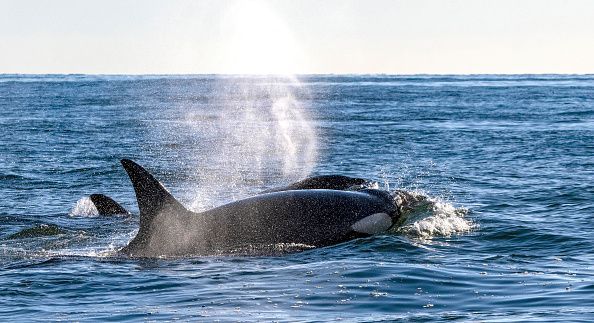
Killer whales are a common sight for fishermen where the Atlantic Ocean meets the Mediterranean Sea
- Published 14 May 2024
A sailing yacht has sunk in Moroccan waters in the Strait of Gibraltar after being rammed by an unknown number of orcas, Spain's maritime rescue services said.
Two people onboard the vessel, Alboran Cognac, were rescued by a passing oil tanker, after the incident at 0900 local time (0800 BST) on Sunday.
It is the latest in a series of orca rammings of vessels around the Strait of Gibraltar over the past four years.
Scientists are unsure about the exact causes of the behaviour, but believe the highly intelligent mammals could be displaying "copycat" or "playful" behaviour.
Spain's maritime rescue service said the two passengers reported feeling sudden blows to the hull and rudder, causing water to seep into the vessel.
The couple alerted emergency services and were rescued by a nearby oil tanker which then took them to Gibraltar.
The yacht was left adrift and eventually sank.
Orca rammings in the Strait of Gibraltar - one of the busiest waterways in the world, with approximately 300 ships crossing daily - and off the Atlantic coast of Portugal and north-western Spain, have become increasingly common over the past four years.
Experts believe them to involve a subpopulation of about 15 orcas given the designation "Gladis".
The research group GTOA, which tracks the population of the Iberian orca sub-species, has documented nearly 700 interactions involving the species, since the attacks were first reported in May 2020.
Experts believe attacks first began after one or two orcas, which are also known as killer whales, started interacting with and damaging small sailing vessels that month.
One of the main theories that has circulated social media is that the orcas are seeking revenge for White Gladis - a killer whale supposedly hit by a boat.
That caught on when Alfredo López Fernandez, from research group GTOA, was quoted as saying a "traumatised orca" had launched the attacks.
But, according to animal behaviour experts, this might not be true.
"The idea of revenge is a great story, but there's no evidence for it," neuroscientist Lori Marino, president of the Whale Sanctuary Project previously told the BBC .
"There's never been a case of an orca harming a human being in the wild.
"If they really wanted to do damage and harm the people on the boat they could easily do that."
Instead, Lori told the BBC, it's more likely the apparent attacks "started out as play behaviour", and it's a case of copycat killer whales rather than aggression.
"We're talking about very intelligent beings, and we know that they are social learners," she says.
Scientists think the endangered mammals instead appear to be "playing" with the boats out of curiosity and copycat behaviour, rather than aggression.

Related Topics
- Killer whales
Orcas 'learning from adults' to target boats
- Published 2 August 2023
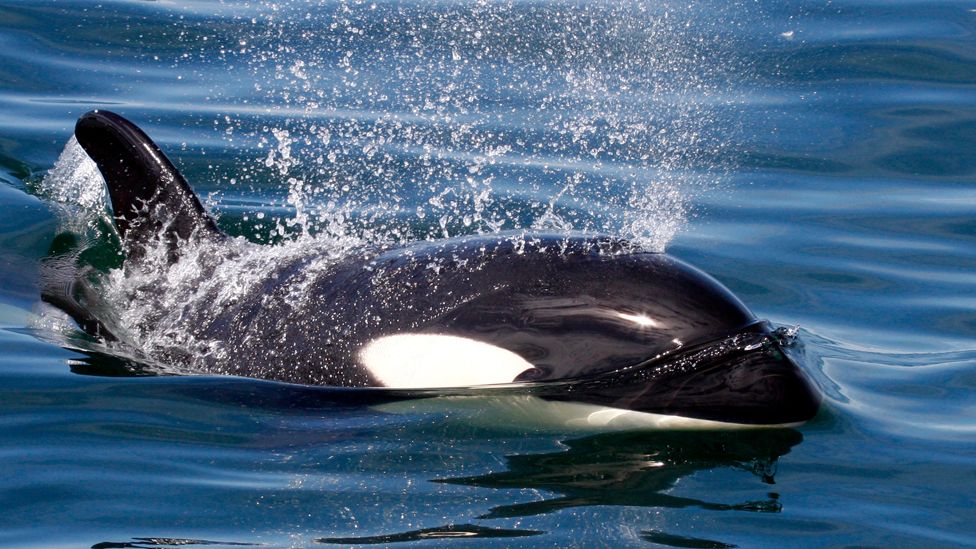
Orca attack videos might not be what they seem
- Published 24 June 2023
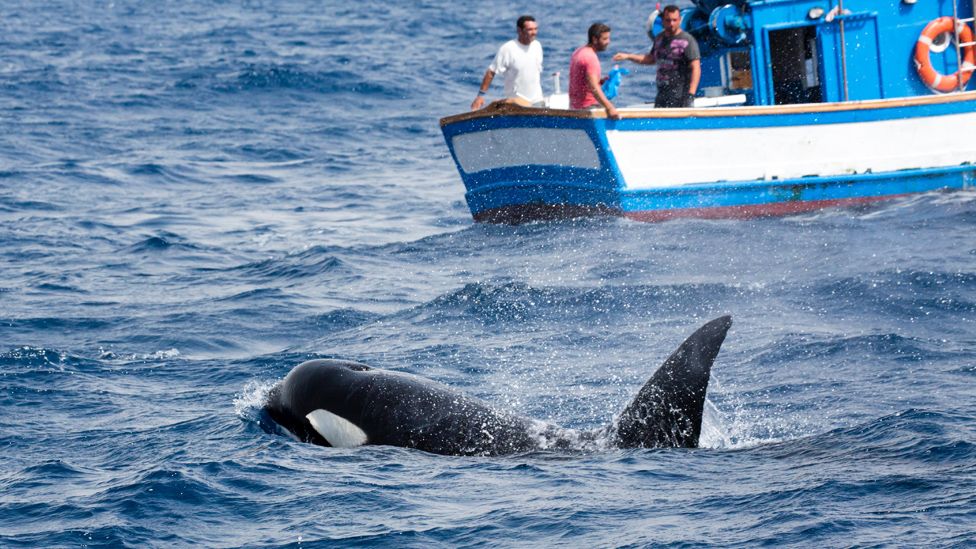
- Motorcycles
- Car of the Month
- Destinations
- Men’s Fashion
- Watch Collector
- Art & Collectibles
- Vacation Homes
- Celebrity Homes
- New Construction
- Home Design
- Electronics
- Fine Dining
- Les Marquables de Martell
- Mira Villas
- Panther National
- Reynolds Lake Oconee
- Wynn Las Vegas
- 672 Wine Club
- Sports & Leisure
- Health & Wellness
- Best of the Best
- The Ultimate Gift Guide
Killer Whales Sunk a 50-Foot Sailing Yacht in the Strait of Gibraltar
It's just the latest in a string of orca attacks on sailboats., tori latham, tori latham's most recent stories.
- This 29-Carat Harry Winston Diamond Ring Could Fetch Nearly $2 Million at Auction
- This Florida Fine Dining Restaurant Garnished Dishes With Ferns That Dogs May Have Peed On
- Two Brothers Have Been Charged With Stealing $25 Million in Crypto in 12 Seconds
- Share This Article

Two sailors had a whale of a time over the weekend—but only in the technical sense.
Related Stories
Isa unveils a trio of sleek new superyachts, this new 131-foot superyacht concept brings high architecture to the high seas.
- Tesla’s Cybertruck Inspired This New Solar-Powered Trailer
“This was a scary moment,” the skipper Jelmer van Beek said at the time. “Three orcas came straight at us and started hitting the rudders. Impressive to see the orcas, beautiful animals, but also a dangerous moment for us as a team.”

While that attack didn’t result in the sinking of the ship, another sailing yacht sank near the Tanger Med port in November, The New York Times wrote. The crew of that ship had to abandon the boat after a group of orcas slammed into the rudder for a whole 45 minutes. (The whales have seemingly been targeting sailboats in particular.)
Researchers don’t know for sure why the whales have been attacking boats, but they think it may be one of the ways the orcas play, the Times said—a pretty dangerous form of amusement, albeit. Others have theorized that it’s a short-term fad among the animals, or that one orca experienced a traumatic event that made it aggressive and other whales began to mimic that behavior. The incidents have become so common in recent years that sailors trade advice online about how to maneuver in the Strait of Gibraltar area, and the Spanish government issued a release that included tips for sailors.
Tori Latham is a digital staff writer at Robb Report. She was previously a copy editor at The Atlantic, and has written for publications including The Cut and The Hollywood Reporter. When not…
Read More On:
- Sailing Yacht
More Marine

Wider Yachts Is Debuting a 92-Foot Hybrid Catamaran at the Venice Boat Show—Here’s a First Look

This New 394-Foot Custom Superyacht Will Be the Largest Amels Yet

Culinary Masters 2024
MAY 17 - 19 Join us for extraordinary meals from the nation’s brightest culinary minds.
Give the Gift of Luxury
Latest Galleries in Marine

K Superyacht in Photos

Meet ‘Home,’ the Sleek 164-Foot Superyacht That Starred in ‘Below Deck’
More from our brands, nypd is investigating death of brooklyn accessories designer, wnba investigating $100k bonus to each las vegas aces player, gullane unveils cao hamburger, sandra kogut films (exclusive), christie’s website still down hours before evening sales, causing concerns, the best yoga mats for any practice, according to instructors.
- Share full article
Advertisement
Supported by
Orcas Sink Another Boat Near Iberia, Worrying Sailors Before Summer
Two people were rescued on Sunday after orcas damaged their boat near the Strait of Gibraltar, where the animals have caused havoc in recent years.

By Isabella Kwai
Summer is on the way, meaning that the orcas are out to play near the Strait of Gibraltar — which is bad news for sailors.
Two people were rescued on Sunday after an attack by a group of orcas caused enough damage to sink their boat, according to the Spanish maritime rescue service. It was the fifth such sinking in waters off the Iberian Peninsula and North Africa in recent years.
The Alboran Cognac, a sailing yacht about 50 feet long, was approached by the animals on Sunday morning, some 14 miles off Cape Spartel in Morocco, the rescue service said. Crew members onboard reported that the animals had slammed the hull, damaged the rudder and caused a leak.
A nearby oil tanker quickly maneuvered toward the boat and evacuated the two sailors, who were taken to Gibraltar, the rescue service said. The boat was left adrift, and the Moroccan authorities reported that it eventually sank.
It’s the first boat to sink in those waters this year after an orca-related mishap. A group of orcas that traverse the Strait of Gibraltar and nearby waters has plagued sailors and intrigued marine biologists , who are studying the population. Since 2020, orcas have disrupted dozens of sailing journeys in these high-traffic waters, in some cases slamming vessels hard enough to cause critical damage.
Last November, orcas slammed a yacht’s rudder for 45 minutes, causing its crew to abandon the vessel, which sank near the Tanger Med port.
The group is more likely to appear in the busy lanes around the Gulf of Cadiz and the Strait of Gibraltar between April and August, the Spanish government said in a news release, and sailors have spotted some of the orcas there in recent weeks.
Researchers do not know why the pod is targeting boats, but they have theorized that the behavior is a form of play for the curious apex predators. The interactions have become so frequent that they are now a multinational issue, involving scientists and officials from Spain, Portugal and Morocco. Online, anxious sailors have gathered to share advice on navigating “orca alley,” and biologists are tracking the orcas’ movements and testing methods that could deter them.
In the event of an orca encounter, the government advised in its release, boats should not stop but instead head toward shallower waters near the coast.
But the number of incidents may be declining: Researchers at the Atlantic Orca Working Group said on Monday that the number of orca interactions with boats between January and May had dropped some 40 percent, compared with that of similar periods in the past three years.
Isabella Kwai is a Times reporter based in London, covering breaking news and other trends. More about Isabella Kwai
Orcas again sink yacht near Strait of Gibraltar as high-risk season looms
Two people were rescued after orcas hit the roughly 50-foot Alboran Cognac 14 miles off the coast of Morocco, the 26th orca encounter in the region this year.

The boat-sinking orcas are back.
Around 9 a.m. Sunday near the Strait of Gibraltar, two people on board the roughly 50-foot Alboran Cognac reported blows to the vessel’s hull and saw damage to the rudder as water flowed into the ship, Spain’s maritime rescue agency said.
An unknown number of killer whales had struck again, after hundreds of such encounters in recent years.
Over the radio, responders told the two individuals to put on their life jackets, make sure their GPS locaters were turned on and prepare for emergency evacuation. In the meantime, Spanish and Moroccan rescue agencies began urgently working to save them, locating a nearby oil tanker and electing not to dispatch a helicopter.
After about an hour, that tanker rescued the pair 14 miles off Cape Spartel in northern Morocco, the Spanish Maritime Safety and Rescue Agency (SASEMAR) said in a news release. The boat was left adrift and soon sank.
Spain-based Alboran Charter confirmed its ownership of the sunken vessel and said the individuals were customers. The company declined to say more about what happened or who the clients were.
Iberian orcas sinking a ship is not new. Over the past four years, at least 15 orcas have interacted with hundreds of boats sailing in the waters off Portugal, Spain and Morocco, sinking a handful of vessels in seemingly coordinated ambushes. Some ships have been found with teeth marks; others appear to have been rammed by an orca’s head or body.
On average, there have been 168 interactions each year since 2020, according to Grupo de Trabajo Orca Atlántica, or GTOA, a research group studying the region’s killer whales. GTOA has tracked 26 interactions so far this year, down from 61 through a similar time frame in 2023.
It’s not clear why the orcas have recently bumped, bitten and sank vessels. Some scientists say they are simply being playful, or maybe are curious, or perhaps are coming after boats because of a loss of prey. A handful say the actions could actually be gratifying to the whales.
A leading theory, though, is one of vengeance.
This idea, advanced by a scientist who has studied the encounters, posits that a female orca suffered a traumatic run-in with a boat that led her to start attacking the vessels. And because orcas are intelligent marine mammals that learn behaviors like hunting together, others followed.
But there is disagreement over this theory.
Some scientists argue that the incidents shouldn’t be called “attacks” without knowing the whales’ motives. They fear that label could prompt retaliation by boaters, calling it potentially “harmful” to the critically endangered species with just a few dozen members.
“Science cannot yet explain why the Iberian orcas are doing this, although we repeat that it is more likely related to play/socialising than aggression,” a group of more than 30 scientists wrote in an open letter last summer. “ … When we are at sea, we are in the realm of marine life. We should not punish wildlife for being wild.”
The letter explained that orcas have been observed developing “cultural ‘fads,’” including carrying dead fish on their heads, and the incidents with the boats may be nothing more than a “fashion trend.”
SASEMAR warned that the risk of the encounters is highest between May and August, recommending that boats avoid the area between the Strait of Gibraltar to the Gulf of Cádiz to its west. It added that if a boat comes across orcas, it should not stop moving, and instead should head toward the coast and shallower waters. People should not approach the side of the boat and are barred from using measures that could injure or kill the whales.
“It is possible the behaviour, as previous fads have,” the scientists wrote, “will disappear as suddenly as it appeared.”

May 14, 2024
Orcas Just Sank Another Yacht
Orcas have once again attacked and sunk a boat near the Strait of Gibraltar, a behavior that has scientists stumped
By Andrea Thompson
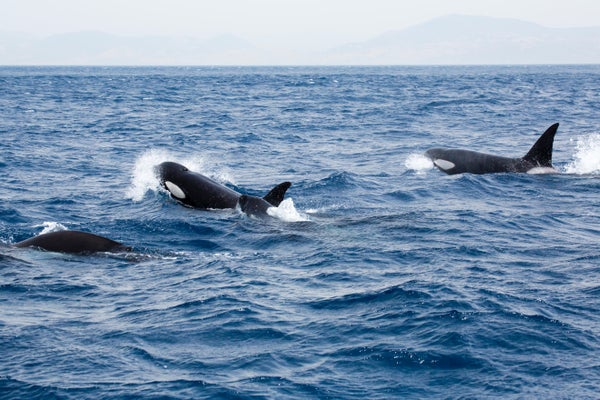
Orcas in the Strait of Gibraltar.
Patty Tse/Alamy Stock Photo
The orcas are at it again.
A group of the highly social marine mammals, also called killer whales, attacked and sank a 50-foot-long sailing yacht on Sunday, the New York Times reported . Two people had to be rescued from the waters near the Strait of Gibraltar.
The incident was yet another in a startling spate of such attacks by orcas ( Orcinus orca ) in the area since 2020—an apparently emerging phenomenon that has researchers stumped.
On supporting science journalism
If you're enjoying this article, consider supporting our award-winning journalism by subscribing . By purchasing a subscription you are helping to ensure the future of impactful stories about the discoveries and ideas shaping our world today.
“It is a rare behavior that has only been detected in this part of the world,” said Alfredo López, an orca researcher at the Atlantic Orca Working Group (GTOA), in an interview with Scientific American last year.
In the more than 500 cases GTOA has documented of orcas reacting to boats, most often the animals have only approached the vessels. In the fraction of reports that have included physical interactions, the orcas have usually bit at a vessel’s rudder. The attacks have usually lasted less than 30 minutes, but some have gone on for up to two hours.
So far there are two main hypotheses regarding the baffling behavior. One is that it is a fad, which orcas seem to engage in just like humans do. Orcas in one Pacific Northwest group famously spent the summer of 1987 sporting dead salmon on their head, for example.
The other is that the new trend stems from past negative experiences with boats, which can strike and severely harm marine animals. The Iberian orca population is critically endangered; migration routes put its members in the path of many fishing, military and recreational vessels. But researchers caution against attributing malicious intent to animals. Deborah Giles, science and research director of the Washington State–based nonprofit conservation organization Wild Orca, previously told Scientific American that orcas in the Pacific Northwest were relentlessly pursued by humans in the 1960s and 1970s—but never attacked people or boats.
Scientists are gaining a greater awareness and understanding of the these clever predators by studying not only the boat attacks (which GTOA has said have declined overall so far this year, compared with previous ones) but also other behaviors. The first recorded instance of a group of orcas killing a blue whale was observed in 2019, and single orcas have been documented killing great white sharks . Recent research has also suggested that orcas in the Pacific Northwest should actually be recognized as two different species versus part of a single global species. It is possible that other groups that are currently considered subpopulations of that one species are also separate ones.
Watch CBS News
Killer whales sink yacht after 45-minute attack, Polish tour company says
By Emily Mae Czachor
November 6, 2023 / 9:58 AM EST / CBS News
A group of orcas managed to sink a yacht off the coast of Morocco last week, after its 45-minute attack on the vessel caused irreparable damage, a Polish tour company said.
The incident happened Tuesday, Oct. 31, as a crew with the boat touring group sailed through the Strait of Gibraltar. The narrow waterway bridges the Mediterranean Sea and the Atlantic Ocean, which separates the southern tip of Europe from northern Africa.
A pod of orcas, colloquially called killer whales, approached the yacht and "hit the steering fin for 45 minutes, causing major damage and leakage," the tour agency Morskie Mile, which is based in Warsaw and operated the yacht, wrote on Facebook in a translated post.
Although its captain and crew were assisted by a search-and-rescue team as well as the Moroccan Navy, the yacht could not be salvaged. It sank near the entrance to the port of Tanger-Med, a major complex of ports some 30 miles northeast of Tangier along the Strait of Gibraltar. None of the crew members were harmed, said the Polish tour agency, adding that those on board the sunken yacht were already safe and in Spain by the time their Facebook post went live.
"This yacht was the most wonderful thing in maritime sailing for all of us. Longtime friendships formed on board," wrote Morskie Mile. The company said it was involved in other upcoming cruises in the Canary Islands and would work to make sure those boat trips went ahead as planned.

Last week's incident in the Strait of Gibraltar was not the first of its kind. Reported attacks by killer whales that seem to be trying deliberately to capsize boats off the coast of Spain and Portugal have more than tripled over the last two years, according to data released in the spring by the research group GTOA, which studies orcas around Gibraltar.
"Nobody knows why this is happening," Andrew W. Trites, professor and director of Marine Mammal Research at the University of British Columbia, told CBS News in May. "My idea, or what anyone would give you, is informed speculation. It is a total mystery, unprecedented."
GTOA recorded 52 maritime interactions with orcas between the Strait of Gibraltar and Galicia, a coastal province in northwestern Spain, between July and November 2020. The incidents picked up in the years that followed, with 197 interactions recorded in 2021 and 207 recorded in 2022, GTOA said, noting that the interactions mainly affected sailboats.
Then, in June of this year, one of two sailing teams involved in an international race around the world reported a frightening confrontation involving multiple orcas as they traveled through the Atlantic Ocean to the west of Gibraltar. The teams, which were competing in The Ocean Race, said the orcas did not damage their boats or harm crews, but recalled the sea creatures pushing up against and, in one instance, ramming into one of the boats. The orcas also nudged and bit the rudders, one crew member said.
Caitlin O'Kane and Kerry Breen contributed to this report.
Emily Mae Czachor is a reporter and news editor at CBSNews.com. She covers breaking news, often focusing on crime and extreme weather. Emily Mae has previously written for outlets including the Los Angeles Times, BuzzFeed and Newsweek.
More from CBS News

Houthi missile strikes Greek-owned oil tanker in Red Sea, U.S. says

3 Spanish tourists killed, multiple people injured during attack in Afghanistan

North Korea continues recent spate of weapons tests, South says

Bodies of three hostages recovered by Israeli forces in Gaza
Orcas’ latest boat attack claims yacht sailing in Strait of Gibraltar
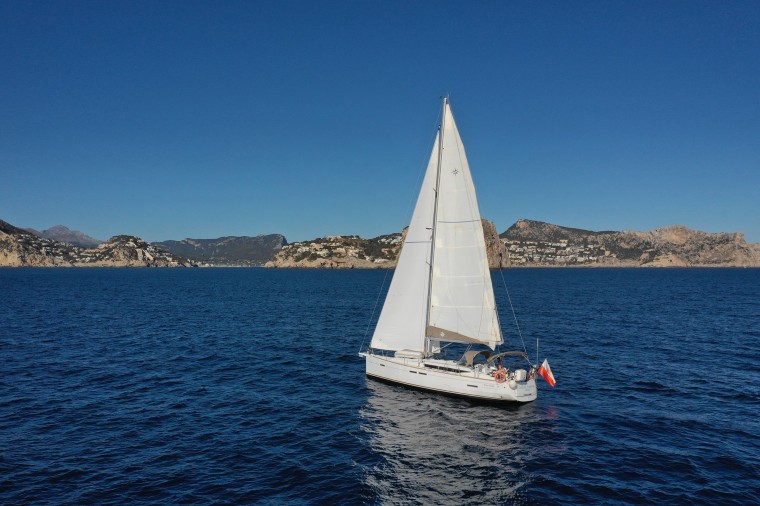
A yacht sank after it was attacked by a pod of orcas for 45 minutes, a sailing company has said, marking the latest assault on a boat by the sea mammals this year.
Polish tour operator Morskie Mile — which means "sea miles" — said in a Facebook post that its yacht Grazie Mamma II was attacked while sailing the Strait of Gibraltar between Spain and Morocco on Oct. 31.
The whales attacked the boat's rudder, the company said, causing major damage and a leak. Despite an attempt by the captain to take the boat to the nearest port, and a rescue attempt that involved the Moroccan Navy, the yacht sank near the entrance to the port of Tanger Med, about an hour's drive east of the city of Tangiers.
The boat's crew were unharmed, the company said in a statement that NBC News translated from Polish. The same statement was posted to the company's website by company owner Lech Lewandowski.
"For us, this yacht was everything that was great about sea sailing," he said.
"Long-term friendships were formed onboard. We sailed this yacht through the most beautiful places in Europe and the Atlantic archipelagos, trained numerous yacht helmsmen, discovered the beautiful and unknown, tasted Mediterranean specialties and sailed, sailed, sailed," Lewandowski continued.
The company said it was planning to honor forthcoming cruise bookings by using "friends' yachts." Future trips will take in the Baltic Sea, Norway, Italy and the Canary Islands, according to the company's website. A single leg of a voyage can cost 1,800 Polish zloty ($432).
In May, it emerged that orcas were responsible for attacking and sinking three boats in southern Europe. Encounters between orcas and humans have been increasing since 2020, researchers say , but no human deaths have been reported.
The increased orca-boat activity has led to a slew of internet memes this year, with some claiming they were joining the "orca wars" on the side of the orcas.
In September, a Russian boat on a round-the-world trip was sunk after a prolonged attack by tiny cookiecutter sharks.
Patrick Smith is a London-based editor and reporter for NBC News Digital.

Orcas strike back (again), sinking another yacht in Europe after 45-minute attack
Sailors’ newest nightmare has struck again, and on Halloween of all days.
A pod of orcas in southwestern Europe sank a sailing boat on Oct. 31 after a non-stop, 45-minute attack, Live Science reported . The incident is the fourth occurrence in two years where orcas, also known as killer whales, are blamed for sinking ships in southwestern Europe.
Orca pods from the Strait of Gibraltar region have been harassing boats and their passengers for more than three years.
Start the day smarter. Get all the news you need in your inbox each morning.
According to a translated Facebook post made by Polish cruise company Morskie Mile , owner of the sunken boat, a mid-size sailing yacht named the Grazie Mamma was attacked by a pod of orcas off the coast of Morocco in the Strait of Gibraltar. Major damage caused by an unknown number of orcas who repeatedly hit the yacht's rudder caused water to enter the vessel's hull. All passengers were safely evacuated before the boat sank as it entered the port of Tanger-Med in Morocco while in tow with the Moroccan Navy.
Orca attacks: Why are orcas attacking boats and sometimes sinking them?
'Simply beautiful': Images of birds, oceans and more revealed in 2023 Nature Conservancy contest
Why are orcas attacking boats?
Tales of orca ambushes have started gaining more traction online as reported incidents off the Iberian coast jumped from 52 in 2020 to more than 200 last year, though no human injuries or deaths have been reported, Orca research group GTOA revealed earlier this year.
Experts first documented juvenile Iberian killer whales — a "unique subpopulation of killer whales that lives in the northeast Atlantic," — touching, pushing, and even turning vessels, including some fishing and inflatable boats, in 2020, GTOA said. Experts think the rest of the population could be mimicking the behavior.
Killer whales: In a first, detailed video captures orcas hunting great white sharks in South Africa
Experts gathered earlier this year to try and address "urgent need for specific actions based on international coordination between administrations, mariners and scientists to prevent future damage to people, orcas and vessels," GTOA said.
Andrew Trites, professor and director of Marine Mammal Research at the University of British Columbia, told CBS News that there are two main theories about why this is happening, but for now it remains to be an “unprecedented” mystery. Trites said something is positively reinforcing the behavior among the highly intelligent species.
Iberian orcas are the only species of whale that have been known to attack boats in this region, Trites added.
The first main theory is that orcas are engaging in a type of whale "play" or "sport,” Trites said . The second theory is that orcas’ years of dealing with traumatic boating injuries have resulted in a "negative experience.”
Whale expert Anne Gordon told USA Today that these are isolated incidents.
"Yes, their job is to be predators in the ocean, but in normal circumstances there is absolutely zero threat to humans in a boat," Gordon said.
“I think it gets taken as aggression because it’s causing damage, but I don’t think we can say that the motivation is aggressive necessarily,” Monika Wieland Shields, director of the Washington based nonprofit research organization Orca Behavior Institute, told NBC News late last month.
This article originally appeared on USA TODAY: Orcas strike back (again), sinking another yacht in Europe after 45-minute attack
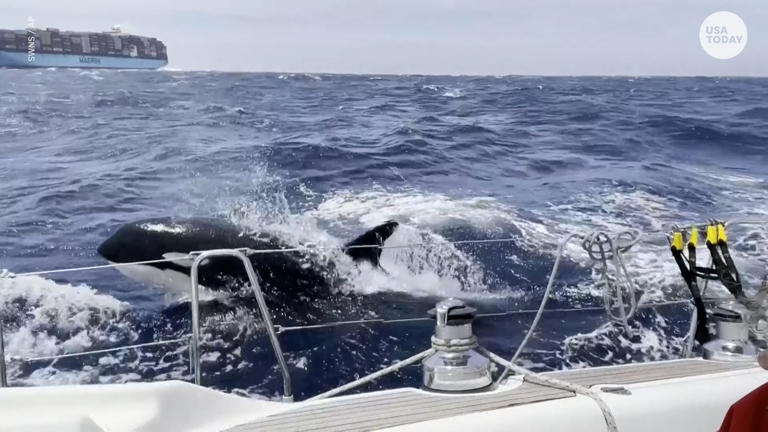
- Skip to main content
- Keyboard shortcuts for audio player
Orcas sank a yacht off Spain — the latest in a slew of such 'attacks' in recent years
Scott Neuman

Killer whales are pictured during a storm in the fjord of Skjervoy in 2021 off the coast of northern Norway. Researchers say orcas are stepping up "attacks" on yachts along Europe's Iberian coast. Olivier Morin/AFP via Getty Images hide caption
Killer whales are pictured during a storm in the fjord of Skjervoy in 2021 off the coast of northern Norway. Researchers say orcas are stepping up "attacks" on yachts along Europe's Iberian coast.
The crew of a sinking yacht was rescued off the coast of Spain this week after a pod of orcas apparently rammed the vessel – the latest "attack" by the marine mammals in the area that has left scientists stumped, several boats at the bottom of the ocean and scores more damaged.

Killer whales are 'attacking' sailboats near Europe's coast. Scientists don't know why
The encounter on Sunday between an unknown number of orcas, also known as "killer whales," and the 49-foot sailing yacht Alboran Cognac occurred on the Moroccan side of the Strait of Gibraltar, the narrow passage linking the Atlantic and Mediterranean where the majority of such incidents have occurred in recent years.
The Alboran Cognac's crew said they felt sudden blows on the hull and that the boat began taking on water. They were rescued by a nearby oil tanker, but the sailboat, left to drift, later went down.
The sinking brings the number of vessels sunk – mostly sailing yachts – to at least five since 2020. Hundreds of less serious encounters resulting in broken rudders and other damage, Alfredo López Fernandez, a coauthor of a 2022 study in the journal Marine Mammal Science, told NPR late last year.
As NPR first reported in 2022, many scientists who study orca behavior believe these incidents — in which often one or more of the marine mammals knock off large chunks of a sailboat's rudder — are not meant as attacks, but merely represent playful behavior.
View this post on Instagram A post shared by Catamaran Guru(@catamaranguru)
Some marine scientists have characterized these encounters over the years as a "fad," implying that the animals will eventually lose interest and return to more typical behavior.
The study co-authored by López Fernandez, for example, indicated two years ago that orcas were stepping up the frequency of their interactions with sailing vessels in and around the Strait of Gibraltar.
Some researchers think it's merely playful behavior
One hypothesis put forward by Renaud de Stephanis, president and coordinator at CIRCE Conservación Information and Research, a research group based in Spain, is that orcas like the feel of the water jet produced by a boat's propeller.

A picture taken on May 31, 2023, shows the rudder of a vessel damaged by killer whales ( Orcinus orca ) while sailing in the Strait of Gibraltar and taken for repairs at the Pecci Shipyards in Barbate, near Cadiz, southern Spain. Jorge Guerrero/AFP via Getty Images hide caption
A picture taken on May 31, 2023, shows the rudder of a vessel damaged by killer whales ( Orcinus orca ) while sailing in the Strait of Gibraltar and taken for repairs at the Pecci Shipyards in Barbate, near Cadiz, southern Spain.
"What we think is that they're asking to have the propeller in the face," de Stephanis told NPR in 2022. "So, when they encounter a sailboat that isn't running its engine, they get kind of frustrated and that's why they break the rudder."
In one encounter last year, Werner Schaufelberger told the German publication Yacht that his vessel, Champagne, was approached by "two smaller and one larger orca" off Gibraltar.
"The little ones shook the rudder at the back while the big one repeatedly backed up and rammed the ship with full force from the side," he said.
The Spanish coast guard rescued Schaufelberger and his crew, towing Champagne to the Spanish port of Barbate, but the vessel sank before reaching safety.

A worker cleans Champagne, a vessel that sank after an attack by orcas in the Strait of Gibraltar and was taken for repairs at the Pecci Shipyards in Barbate, near Cadiz, southern Spain, on May 31, 2023. Jorge Guerrero/AFP via Getty Images hide caption
A worker cleans Champagne, a vessel that sank after an attack by orcas in the Strait of Gibraltar and was taken for repairs at the Pecci Shipyards in Barbate, near Cadiz, southern Spain, on May 31, 2023.
The encounters could be a response to past trauma
López Fernandez believes that a female known as White Gladis, who leads the group of around 40 animals, may have had a traumatizing encounter with a boat or a fishing net. In an act of revenge, she is teaching her pod-mates how to carry out attacks with her encouragement, he believes.
"The orcas are doing this on purpose, of course, we don't know the origin or the motivation, but defensive behavior based on trauma, as the origin of all this, gains more strength for us every day," López Fernandez told Live Science .
It's an intriguing possibility, Monika Wieland Shields, director of the Orca Behavior Institute , told NPR last year.
"I definitely think orcas are capable of complex emotions like revenge," she said. "I don't think we can completely rule it out."
However, Shields said she remained skeptical of the "revenge" hypothesis. She said that despite humans having "given a lot of opportunities for orcas to respond to us in an aggressive manner," there are no other examples of them doing so.
Deborah Giles, the science and research director at Wild Orca, a conservation group based in Washington state, was also cautious about the hypothesis when NPR spoke to her last year. She pointed out that killer whale populations in waters off Washington "were highly targeted" in the past as a source for aquariums. She said seal bombs – small charges that fishers throw into the water in an effort to scare sea lions away from their nets – were dropped in their path while helicopters and boats herded them into coves.
"The pod never attacked boats after that," she said.
- Search Please fill out this field.
- Manage Your Subscription
- Give a Gift Subscription
- Newsletters
- Sweepstakes
- Human Interest
2 Yacht Passengers Rescued After Whales Sink Their Boat in Growing Trend That Has Scientists Divided
Reports of aggressive encounters between orcas and sailboats on the Iberian coast off of Europe began in 2020 and have ramped up since then
Orcas have sunk another yacht off the Strait of Gibraltar — the latest incident in a growing trend that initially began in 2020.
A sailing yacht went down in Moroccan waters in the Strait of Gibraltar after an unknown number of orcas repeatedly rammed into it, according to BBC , NBC News and Fox News .
At around 9 a.m. local time on Sunday, May 12, a pair of crew members aboard the vessel, Alboran Cognac, reported that orcas damaged their yacht, which had been about 14 miles from Cape Spartel in Morocco at the time, Fox News reported.
Spain's maritime rescue service told BBC that the two passengers called for help after they felt something hit the hull and rudder, which caused the yacht to take on water.
A helicopter was sent by Spain's maritime rescue service to the location to rescue the crew members and a nearby oil tanker was also redirected to their location to provide assistance. The oil tanker was able to respond quickly and the two crew members were taken onboard and transported safely to Gibraltar, per the outlets.
Meanwhile, the crew members’ sailing yacht was left adrift and eventually sunk into the ocean.
Reports of aggressive encounters between orcas and sailboats in the Iberian coast off of Europe began in 2020, according to Maritime Executive , and the incidents have ramped up since then.
Never miss a story — sign up for PEOPLE's free daily newsletter to stay up-to-date on the best of what PEOPLE has to offer, from juicy celebrity news to compelling human interest stories.
The reason behind the growing number of boat attacks by orcas in the area has perplexed researchers, though some have theorized that the killer whales were taught this behavior by other members of their species.
Alfredo López Fernandez, a marine biologist at the University of Aveiro in Portugal, told Live Science he believed the interactions began after one orca, called "White Gladis," who had been “traumatized’ by an incident with a vessel and “started this behavior of physical contact" with boats. He said other killer whales then copied it.
Scientists from research center CIRCE noted that a group of three orcas from the same pod have been involved in several boat rudder interactions, though they added that they believed the orcas were "engaging with sailboats as a form of entertainment" rather than a form of hunting.
Marine biologist Dr. Renaud de Stephanis told the BBC, “From what I’m seeing, it’s mainly two of those guys [the Gladises] in particular that are just going crazy. They just play, play and play. . . . It just seems to be something they really like and that’s it.”
“I’ve seen them hunting,” the biologist added. “When they hunt, you don’t hear or see them. They are stealthy, they sneak up on their prey. I’ve seen them attacking sperm whales - that’s aggressive....but these guys, they are playing."
Related Articles
Boats still aren't safe from orcas as the Mediterranean yachting season kicks off and killer whales sink another yacht
- Killer whales took down another yacht on Monday as the Mediterranean yachting season begins.
- It's the latest incident of orcas clashing with boats, which has been on the rise in recent years.
- Marine biologists say the orcas are likely playing and may be learning the behavior from each other.

The Mediterranean yachting season has kicked off for the summer — and it didn't take long for another yacht to fall victim to a killer whale encounter .
A group of orcas sank a 50-foot sailing yacht in Moroccan waters on Sunday in the latest of several similar incidents involving the highly social species that have occurred over the past four years.
An unknown number of orcas were involved in the incident, which took place in the Strait of Gibraltar, Spain's maritime rescue service said Monday, according to Reuters .
Related stories
The incident is the most recent in a spate of bizarre orca encounters with boats that have been on the rise in recent years, primarily in Mediterranean waters south of Spain, where many yachts cruise during the summer months.
Two passengers were on board the Alboran Cognac around 9 a.m. local time on Sunday when they felt sudden hits to the hull and rudder, Reuters reported, citing the maritime service. Water soon started to pour into the yacht.
A nearby oil tanker came to the people's rescue, saving them from the waterlogged ship and delivering them to land.
But the yacht wasn't as lucky. The Alboran Cognac stayed adrift for a time until it ultimately sank.
Since 2020, hundreds of similar encounters between boats and orcas have been documented off the southern coasts of Spain and Portugal, often near the Strait of Gibraltar. And it's not just yachts. The orcas have also rammed into sailboats, and some mariners have even created heavy-metal playlists in hopes of deterring the killer whales — though experts say it'll do little to help .
Researchers say the clashes typically follow a similar pattern, with a killer whale repeatedly ramming into the rudder of a ship, often until it breaks and the boat is stranded. Most of the time, the ships are able to escape with minimal damage, but several boats have sunk .
While the so-called orca "attacks" may appear violent, marine biologists have said it's unlikely the encounters are actually malicious. Several experts told Business Insider last year that the orcas are probably just playing .
Andrew Trites, director of the Marine Mammal Research Unit at the University of British Columbia in Canada, said ramming into the boats may simply be a "playful activity that's gotten way out of hand."
Researchers have also said the killer whales may be learning the behavior from each other through simple imitation.
Watch: Billionaire's $20 million plan to send orca home after 50 years in captivity
- Main content
Why are killer whales going ‘Moby-Dick’ on yachts lately? Experts doubt it’s revenge
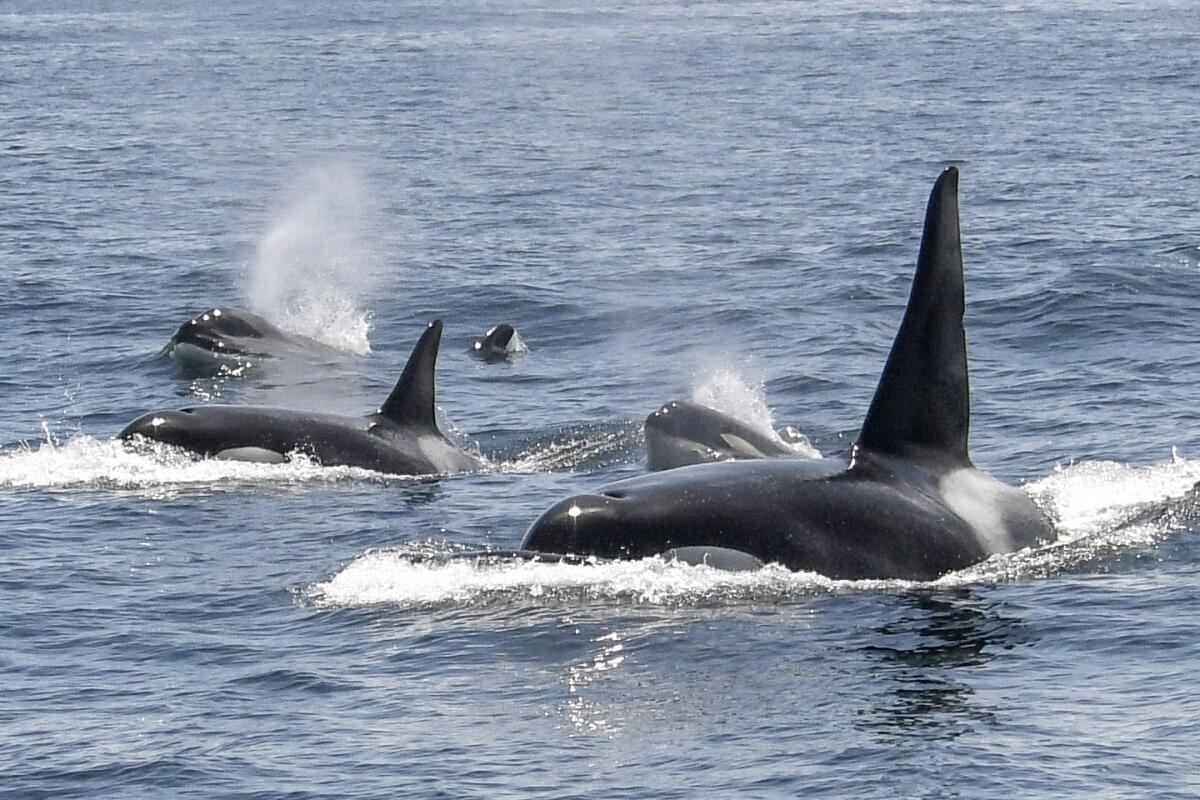
- Show more sharing options
- Copy Link URL Copied!
The attacks started suddenly and inexplicably in the spring of 2020 — pods of endangered killer whales began ramming yachts and fishing boats in European waters, pushing some off course and imperiling others.
Since then, there have been more than 500 reports of orca encounters off the Iberian Peninsula, the most recent occurring Thursday when a trio of whales rubbed against and bumped a racing sloop in the Strait of Gibraltar.
In most cases, the financial and structural damage has ranged from minimal to moderate: Boats have been spun and pushed, and rudders have been smashed and destroyed. Three vessels have been so badly mauled, they’ve sunk.
As the encounters continue, shaky video captured by thrilled and fearful seafarers has ignited a global internet sensation, while experts have struggled to explain the behavior and its timing. The seemingly militant whales have also won over a legion of adoring fans — many transfixed by the notion that the mammals are targeting rich people and exacting revenge for all the wrongs humanity has waged on their species and their ocean home.
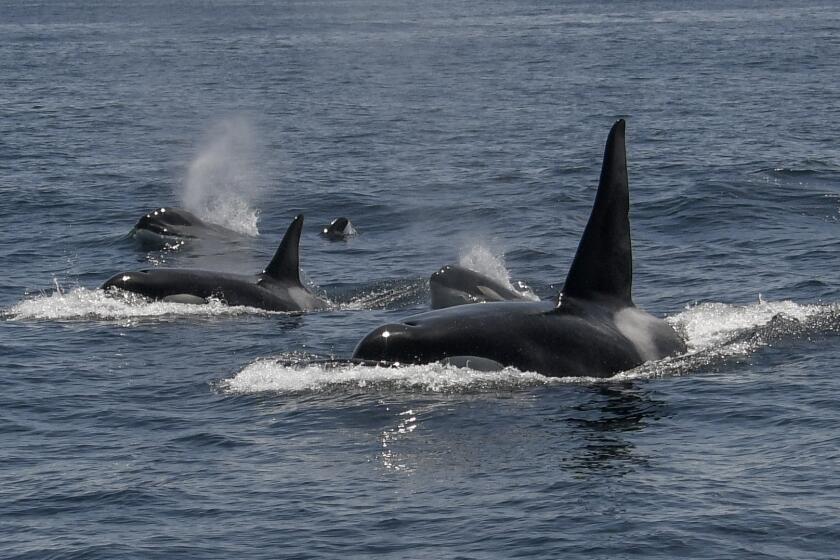
Two dozen killer whales spotted celebrating a hunt off the San Francisco coast
The unusually large group spotted near the Farallon Islands was possibly a meeting of six or seven families.
June 7, 2023
Others wonder if the unusually large pods of multi-ton cetaceans now appearing off the coasts of San Francisco , Monterey and Nantucket, Mass., may soon follow suit.
Despite such rampant speculation on social media, most killer whale scientists have offered a very different interpretation. The Moby-Dick “revenge” narrative for the behavior is highly unlikely, they say.
“That just doesn’t sit right with me,” said Deborah Giles, an orca researcher at the University of Washington in Seattle and director of Wild Orca, a Washington-based conservation research organization.
She noted that despite the long history of orcas being hunted by whalers — and more recently marine parks — these top ocean predators have typically demonstrated a lack of aggression toward humans. There are no verified instances of orcas killing humans in the wild. The only deaths have occurred in marine parks and aquariums, where animals taken from the wild and forced to perform for humans in small tanks have attacked their trainers.
“So, I just don’t really see it as an agonistic activity; I just don’t see it going down like that,” said Giles, who has studied killer whales in the Pacific Ocean, Puget Sound and the Salish Sea for nearly 20 years.
Instead, she thinks the animals are engaging with boats because the vessels are “either making an interesting vibration or sound, or maybe it’s the way the water moves past the keels that is intriguing to these animals.”
The scientific literature is rife with anecdotes and research showing high cognition, playfulness and sociality in the species known as Orcinus orca — and examples of what appear to be the cultural transmission of new behaviors, either via teaching or observation.
In 1987, a female orca in the Pacific waters off North America was spotted sporting a dead salmon on her head. Within weeks, individuals in two other pods also began wearing fish hats. The trend lasted a few months and fizzled out within a year.
In South Africa, the killing of white sharks appears to be growing in popularity among a resident group of killer whales in the waters near Cape Town; Giles has watched a local trend of “phocoenacide” — porpoise killing — grow among a group of whales off the San Juan Islands.
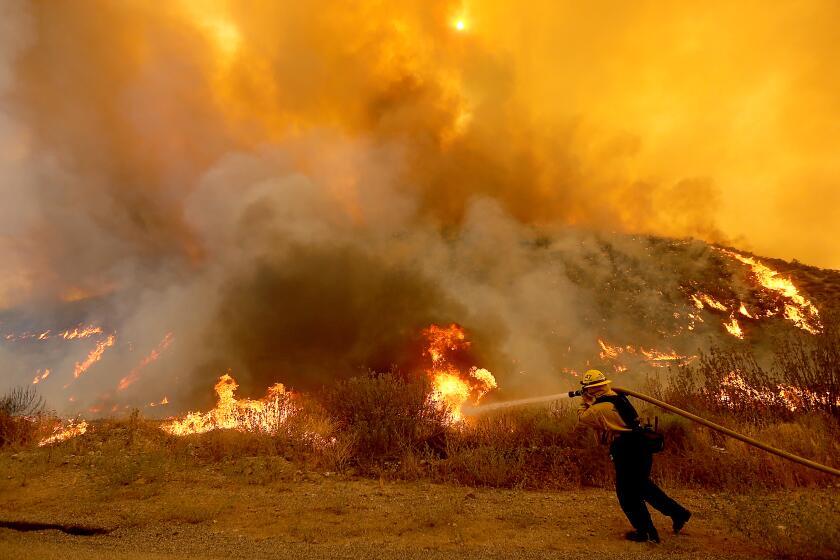
Wildfire burn areas in California are growing ever larger due to greenhouse gas emissions
Between 1996 and 2020, wildfire burn areas in California grew five times larger than in the 25 years prior. Scientists say climate change is to blame.
June 14, 2023
In both cases, the behavior does not appear to be for the purpose of feeding, Giles said. The orcas do not eat the dead animals. For instance, in the case of the porpoises, the killer whales played with them — bandying them about, sometimes surfing with them, other times carrying them on the orcas’ pectoral fins — until the porpoises drowned, at which point they were abandoned, she said.
“Fads” are not unique to orcas. Other animals, including primates and other cetaceans, have also been observed to adopt new behaviors, which then spread through a social group.
Susan Perry, a biological anthropologist at UCLA, has studied a population of capuchin monkeys in Costa Rica, where she has observed and demonstrated the cultural transmission of novel behaviors, including “eye poking” — in which one monkey slips its finger “knuckle deep” between the eyelid and the bottom of another monkey’s eyeball.
But the idea that the whales’ behavior is a response to trauma has gripped many — including the researchers who most closely study this population and first documented the behavior.
In a paper published last year , a team of Portuguese and Spanish researchers suggested the behavior seen in the Strait of Gibraltar orcas could have been triggered by a variety of causes, including trauma.
Alfredo López Fernandez, a killer whale researcher with GT Orca Atlántica, a Portuguese conservation research organization, said it is impossible to know how it started, or which whale or whales may have initially instigated the attacks.
He listed several adult females as the possible original perpetrators — which then taught or showed others how to participate.
There is White Gladis, which seems to be present in most of the attacks; Gladis Negra, which was observed to have injuries in 2020, possibly from a ship strike; and Gray Gladis, which in 2018 witnessed another whale get trapped in fishing gear.
Gladis is a name given to all orcas in the pod that interact with boats; it comes from Orca gladiator, an early nickname given to these boat-jouncing killer whales.
“All of this has to make us reflect on the fact that human activities, even in an indirect way, are the origin of this behavior,” he said.
For Cal Currier’s part, he thinks the whales are entertaining themselves.

Climate & Environment
Bay Area refinery fallout does not pose significant health risk, authorities say
Nearly six months after Martinez Refining Co. released hazardous materials, officials have announced reassuring soil test results.
June 9, 2023
On June 8, as the 17-year-old Palo Alto High School senior sailed through the strait with his father, James, 55, and brother, West, 19, their 30-foot sailboat was accosted and spun in circles.
The rudder was battered, and the trio had to be towed to shore in Spain. “They were playing,” Currier said.
He said that when they pulled in, they were told roughly 30 other boats were ahead of them in line for repairs; half were damaged by the killer whales. He said there were no bite marks on the rudder, and he did not sense aggression from the whales.
For Giles, the Washington killer whale researcher, her biggest concern is that the longer the whales continue this behavior, the more likely it is they’ll get injured or suffer retribution at the hands of humans.
She’s hoping authorities in the region will consider non-traumatic hazing techniques — such as instructing boats to play or make sounds that irritate the whales — to get them to stop. She said studies have shown orcas don’t like the calls of pilot whales and will generally swim away if they hear them. Loud banging sounds, such as hitting a large, metal oikomi pipe underwater, can also be effective.
“Anything that might irritate them, make them lose their interest or swim away,” Giles said.
Currier said he wasn’t too rattled by the whole experience — unlike his dad and brother, who were “scared for their lives.”
The trio have since sold the boat and intend to spend the rest of the vacation on dry land.
More to Read

Cruise ship sails into New York City port with 44-foot dead whale across its bow
May 9, 2024

Killer whales are killer whales, right? It might be a lot more complicated than that
March 29, 2024
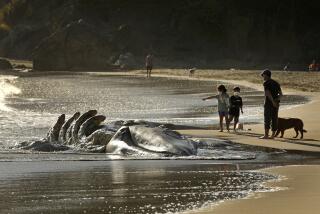
Starvation has decimated gray whales off the Pacific Coast. Can the giants ever recover?
March 27, 2024

Susanne Rust is an award-winning investigative reporter specializing in environmental issues. She is based in the Bay Area.
More From the Los Angeles Times

South Dakota Gov. Kristi Noem, under fire for shooting dog, describes making ‘hard decisions’ at California GOP gathering
May 18, 2024
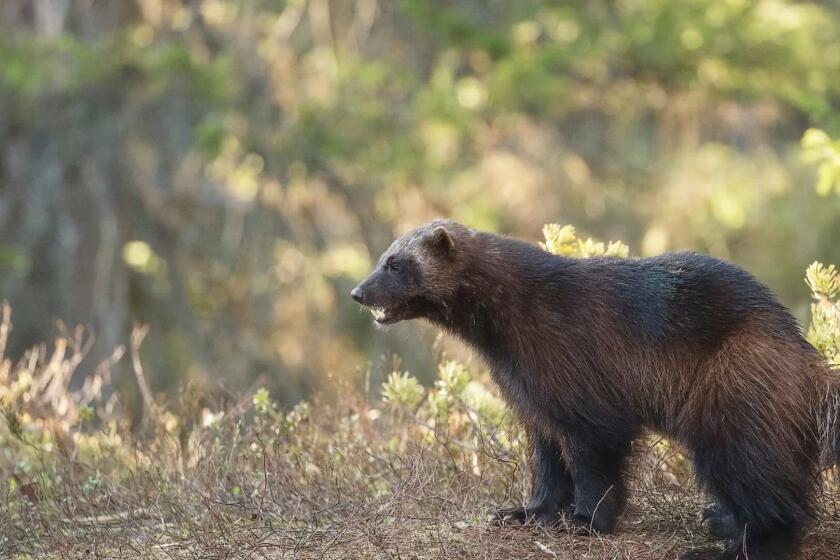
A push to bring wolverines back to California fizzles amid budget woes
May 17, 2024

Torrance coyote trapper investigated for possible violation of state law
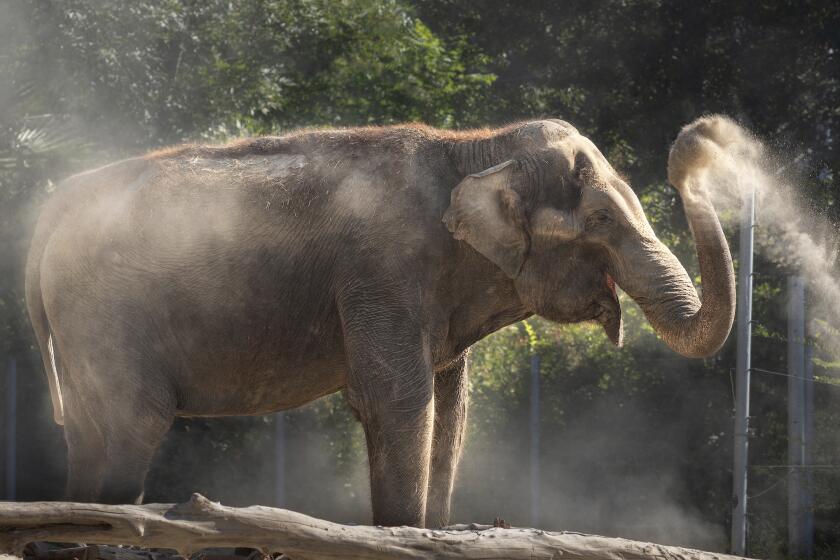
After two L.A. Zoo elephants die in the span of one year, the City Council wants answers
The Mad Scientist and the Killer Whales
By Tomas Weber
Tomas Weber
T he five animals took an hour to put the sailboat beneath the waves. At the end of October 2022, four men, each in his late twenties, set sail from western France toward Lisbon. Augustin Drion, an experienced sailor from Brittany, was one of them. He had come to lend a hand to a friend from engineering school, Elliot Boyard, who owned the 39-foot sailing vessel. From Portugal, they planned to cross the Atlantic to the Caribbean. They would cruise around the islands for a year. Then they would return home.
He heard a crash. The boat shook, and Drion lost his balance. “What happened?” he shouted up to the others. There was banging on the hull from the outside. The crew looked over the side and saw black fins breaking the glassy surface. Five killer whales , each more than half the length of the boat, their glossy skin shining in the sunlight, were taking turns swimming into the back of the sailboat, ramming the rudder with their heads. With each crash, the boat jolted into a new direction.
Editor’s picks
Every awful thing trump has promised to do in a second term, the 250 greatest guitarists of all time, the 500 greatest albums of all time, the 50 worst decisions in movie history.
After a while, Drion began to worry about the boat’s structural integrity. He went down into the cockpit. This time, there was water on the floor. A steady stream flowed in from a crack in the stern. The boat was quickly flooding, and it was starting to sink. Boyard put out a mayday call. The nearest vessel was 60 minutes away, and the men inflated the lifeboat. They wanted to stay on the sinking boat for as long as possible, worried that the orcas might decide to sink their life raft, too — which would be catastrophic. But the water was rising quickly, and they all crowded into the blow-up dinghy. They looked around. The killer whales had gone. A Swedish yacht arrived to pick them up. The men watched the top of the sailboat’s mast disappear beneath the swells.
See Lana Del Rey Bring Out Jelly Roll for Lynyrd Skynyrd's 'Sweet Home Alabama' at Hangout Fest
Trump plans to reward peter navarro for going to jail instead of being a ‘rat’, how illenium became asian america's favorite white boy.
The group of orcas that live around the Iberian Peninsula are the only killer whales that attack boats, and researchers know very little about them. There is only one scientific paper about their new hobby. The Portuguese government has advised sailors to stop moving if killer whales hit them, and wait for them to get bored — which is what Drion and Boyard did instinctively. The Spanish authorities, though, say keep going. In 2020, the Spanish government banned small sailing boats from a part of northwestern Spain. Meanwhile, the attacks are spreading. This community of orcas, documented in the Strait of Gibraltar since the Roman Empire, consists of nearly 90 animals. Some scientists believe that all of them now ram sailing boats. What triggered the behavior is unclear. One hypothesis, though, has taken off: The orcas are seeking revenge.
The notion of killer whales with vendettas against humans — whether for injuring them with boat propellers, or for picking their tuna hunting grounds clean, or for ruining the climate, or for capturing their brothers and sisters and imprisoning them in swimming pools — took the internet by storm last summer. You can buy stickers and mugs of the Gladis orcas. “Fuck them boats.” “Eat the Rich.” “Support for Comrade Gladis.”
But these aren’t superyachts. The orcas tend to leave fishing boats alone, too. The targets include humble craft, sailing boats of the kind you can buy for the cost of a cheap used car. For their owners and crew, many of whom are not, by sailing standards, especially wealthy, the attacks are terrifying. The most recent sinking was last October. There is no reliable way to deter them, and sailors are completely at their mercy.
Which is why, in January 2022, the Spanish government asked Renaud de Stephanis, a 48-year-old Spanish orca expert, to figure out a solution to the problem. De Stephanis, who has a grizzled beard, shaggy hair, and bronzed aging-surfer skin, has been studying this group of orcas since the 1990s. Last December, I flew to Gibraltar, crossed the border into Spain by foot, and drove west along the coast toward a ramshackle house perched upon a cliff above the strait to spend a week with him.
HIS HOUSE IS difficult to pinpoint in the hills above Tarifa, a hippie kite-surfing town at the southernmost tip of mainland Europe. I arrive at the door after getting lost, and a 27-year-old marine-biology intern named Maggie cracks it open. De Stephanis isn’t home right now, she says. He’s at sea. “Be careful,” de Stephanis had warned a few days earlier on Facebook: The orcas are now in the strait. Maggie isn’t sure how long he’ll be. But I can wait for him here.
From the top of the house I can make out the cliffs of the Moroccan coast. A procession of freight ships chugs between the Pillars of Hercules, two promontories that frame the entrance to the Atlantic Ocean: one on the European side, the other in North Africa. For ancient mariners, the two pillars were a warning: Advance no farther. They marked out the edges of the known world and the start of nothingness. According to classical mythology, the Strait of Gibraltar was Hercules’ handiwork — eight miles across at its tightest point. Why would Hercules make it so narrow? To stop sea monsters from coming up into the Mediterranean, wrote Diodorus Siculus, an ancient-Greek historian. The protector of mankind had built a bottleneck for blocking civilization off from the wild.
There are three interns, and they tell me they hardly ever see de Stephanis, despite living in his little house for many months. “He has mad-scientist vibes,” one of them tells me over tapas. Some days, de Stephanis remains in his bedroom morning to night, announcing “Today doesn’t exist.” Or he waits out bad weather and rough swells in his sleeping bag in the living room with an old movie — Gladiator is his favorite. But as soon as conditions are right, he slips out onto the strait again, searching for Gladis.
Which is what he’s doing as I wait, passing the time trying to decipher a Spanish translation of Moby Dick I find on a shelf in his office, beside crossbow darts used for extracting whale biopsies. That evening, as de Stephanis steps through the door just in time for spaghetti and meatballs, I remember I’d read he was an ex-rugby player — his cetacean obsession had followed a short professional career, and he still has the physique of a feared enforcer. His wet blue eyes are a little bloodshot. They appear to intimidate the interns, who were chattering happily until the moment he walked in.
Nobody has died. But sailors worry it’s just a matter of time.
After dinner, de Stephanis kindles a log fire. He tells me about changing ancient seafaring routes, passages sailors had followed since before the ancient Romans. A few months earlier, he had announced that boats should avoid the deep waters in the middle of the strait where the orcas usually strike. Sailors obeyed, and today most vessels in the area hug the coast. Diverting boats seems to delight him. He stands up and starts pacing the living room. “Super fun,” he says. “I like it.”
THE MORNING OF Jan. 10, 2023, was cloudy and calm on the Strait of Gibraltar. De Stephanis and his team of five stepped into an inflatable Zodiac and sped out of Tarifa harbor in the direction of Morocco, past the statue of Christ at the port’s entrance. It was the first day of their government-funded project to understand how to deter the killer whales. First, though, the crew had to check if they were even around.
It was in these waters that once swam the first killer whales to ever be described in writing. “The killer whale, a creature that is the enemy of the other species and the appearance of which can be represented by no other description except that of an enormous mass of flesh with savage teeth,” wrote Pliny the Elder in A.D. 77, “charge[s] and pierce[s] other whales like warships ramming.” But in the winter, killer whales are less common in the Strait of Gibraltar. They often follow the bluefin tuna into the Atlantic, and de Stephanis didn’t expect to see them. Standing on the blow-up tube on the side of the boat, he scanned the horizon. He was not ready to begin any experiments. As far as he knew, the orcas never went for inflatable boats.
Once in the deep water, though, two killer whales started approaching them quickly from behind. Their black-and-white faces were rhythmically emerging from the water as they swam, their eyes fixed on the boat. The pair got closer and closer, until one lifted the Zodiac out of the water with a gentle tap of its nose. It happened again. Everybody on the boat was knocked toward the bow. De Stephanis’ heart was pounding. He worried the orcas would destroy the boat on their first day of work. “I wasn’t scared,” he tells me with a smirk. “OK, I was fucking scared.”
The killer whales played with the blow-up craft for about an hour. Sebastian Lang, a German photographer who lives in Tarifa, had come aboard for the ride. A few years earlier, Lang had been snorkeling at a nearby spot with pilot whales, long black cetaceans with bulbous foreheads that are the only animals Iberian orcas appear to fear. One of them took Lang’s arm in its mouth and swam down to the depths, delivering him back to the surface just before he passed out. As the orcas rammed the fragile inflatable, Lang zoned out again, but this time with a feeling of awe. “My brain shut off,” he tells me. “I wanted to look at them for hours and hours.”
He tried out a pinger that played a high-pitched sound, which some sailors say repels the whales, and found it seemed to attract them instead. He played recordings of pilot whale calls — but he worried they would drive the orcas out of the strait altogether, so he stopped. He dragged decoy rudders behind the boat to see which designs they preferred, and he deployed a prototype deterrent rudder covered with soft spikes. It appeared to be effective. What he failed to prove, though, was the reason for the behavior — although what conclusive evidence of that would look like is hard to imagine. Still, de Stephanis has a theory.
ON A BRIGHT and clear day a few months later, de Stephanis was approached by a group of orcas, including one with a deep wound gouged into his dorsal fin. It was Gladis Black. De Stephanis shows me underwater video he had taken with a GoPro attached to a stick. Beneath the boat, Gladis Black rotates into a vertical position, and presses and rubs the pointed black tip of his face against the rudder. His face and white chin are covered with scratches and scars.
Was he seeking revenge? This theory, it seemed, had originated with Alfredo López, an animal biologist at the University of Aveiro in Portugal. Lòpez believes that one of the orcas could have been harmed, perhaps by a fishing line, and that the behavior might be a response to injury. “Complete bullshit,” says de Stephanis, who has known Lòpez since 1999 through attending whale conferences, and has little respect for him. “I call him ‘the expert,’” he says with a mocking smile. “He’s no friend of mine.” He adds: “He knows I know that he has never seen an orca.”
It’s worth pointing out here that de Stephanis has attracted controversy, too. He has studied the orcas at Loro Parque, Spain’s version of SeaWorld, which still keeps four animals in captivity. The conservation foundation connected to the park has also given him grant money. De Stephanis says he opposes keeping orcas in captivity: We shouldn’t capture any more, he tells me — but as long as they are there, they can be useful to biologists.
Gonzàlez tells me she doesn’t care what de Stephanis thinks of Lòpez’s work. Still, team Lòpez and team de Stephanis battle it out in Facebook comments — and just as the attacks have become a craze among the orcas, Lòpez’s trauma-and-revenge hypothesis quickly became a meme among human onlookers. “Killer whales orchestrating revenge attacks on boats,” wrote the New York Post in 2020. “Revenge of the orcas?” asked the Washington Post in May 2023.
Every orca researcher I speak to agrees that Lòpez’s hypothesis is implausible. Even Drion, whose experience with the orcas felt like an attack, compares the whales to a powerful dog playing rough with a small child. It feels scary, and it’s certainly dangerous — but to the dog, it’s just a game.
If they wanted to sink the boat, they’d jump on it and the game is over.
“If they really wanted to sink the boat,” Drion tells me, “they would just jump on it and the game is over.”
But the attacks could still be a result of how humans have harmed killer whales, de Stephanis says. In 2010, overfishing decimated the bluefin tuna population. During that period, the orcas birthed fewer calves. With fewer siblings to play with, de Stephanis wonders, were boisterous juveniles choosing boats as their playmates instead? OK — but then why are the adults joining in? That’s not so surprising, he tells me. Humans aren’t so different. His daughter is trying to teach him TikTok dances.
Whether or not that story holds water, de Stephanis is convinced Lòpez’s trauma-and-revenge idea is wrong. The behavior is play through and through. But as de Stephanis fills the house with chaos, shouting and blasting Independence Day at 8 a.m., I can’t shake the idea that this interpretation, that it’s nothing but horseplay, overlaps almost too neatly with what he himself seems to share with the orcas.
STILL, DE STEPHANIS is probably right. If the orcas do intend to destroy boats and harm people on them, they could do that easily by smashing holes in the hull — but they never do. They are obsessed only with the rudder. And the idea that the behavior developed in reaction to an injury from a fishing line, or even because of overfishing, is dubious, because the orcas very rarely, to our knowledge, attack fishing boats — for unclear reasons. More than that, though, is the fact that every killer whale scientist I speak to repeats the same thing: These creatures just don’t carry vendettas.
Orcas have “one of the most elaborated brains on the planet,” says Lori Marino, a neuroscientist, expert in whale behavior, and founder and president of the Whale Sanctuary Project. An orca’s cerebral cortex is more convoluted, more intricately folded, than a human’s — which gives them an extraordinary ability to learn, remember, think, and feel. Killer whales lead a rich emotional life, and share some complex feelings with humans, Marino says. They experience empathy, they mourn their dead, and they are probably smart enough to understand why an individual might want to harm another in vengeance — to impart a lesson, for example, or to discourage future attacks. Which makes it even more remarkable that, in the wild, orcas never do.
In the 1960s and 1970s, when orcas in the northeastern Pacific were repeatedly terrorized by boats that kidnapped their relatives and put them into captivity, they never attacked vessels of any kind. Unlike highly intelligent terrestrial mammals, such as chimps, gorillas, or humans, there is very little evidence that wild killer whales have ever sought revenge. (Although orcas in captivity have killed trainers, those animals were probably psychologically disturbed by their environment, says Marino.) When a chimpanzee steals food, the victim often retaliates. An aggrieved macaque will settle scores, sometimes attacking a family member of the perpetrator. But orcas don’t do that. “They have adapted in a way that eliminates the need for aggression,” says Deborah Giles, a killer whale researcher at the University of Washington.
What looks like revenge against humans, Whitehead says, is a behavior that may be a kind of culture, a way this community of orcas now strengthens its group identity. Orca obsessions can quickly turn into collective fads. Take their eating habits. Most wild animals are not fussy gourmands. But the orcas that live in the seas around Antarctica eat tiny penguins, and when they kill them, they discard everything other than the breast muscles. Orcas that eat other whales usually enjoy only the lips and the tongue and leave the rest to wash up or rot. Each community of killer whales speaks in its own dialect, and off the coast of Australia, in a place called Shark Bay, orcas adorn their noses with ornamental sponges. In the 1980s, the salmon-eating orcas of the northeastern Pacific fashioned hats from the carcasses of their prey. They wore them all summer.
Outside of humans, the complexity and stability of these cultural forms is unparalleled. Boat ramming is just the latest of these practices. But when we, another eminent cultural animal, seek to understand what killer whales are up to, we can’t help but see them through the pinhole of our own cultural practices and group dynamics. We look beneath the surface with ape eyes, and we see territoriality and retaliation where we should see cultural behaviors that have little to do with land-based violence — which results in orcas with apelike vendettas going viral.
FOR MOST OF my stay with de Stephanis, the ocean is too rough to go out upon. On my last day, though, there’s a window of calm, and he wants to show me the orcas before I leave. I offer to drive us to the port in my rental car. He thinks I’ll probably drive too slowly, and bombs down the hill on his motorbike. At the port, we meet a man named Salva, who will control the boat while de Stephanis scans the surface for fins. We hop onto the Zodiac, motor past the Jesus statue and out into the strait, and squint into the horizon until our faces hurt.
We see hundreds of silvery dolphins breach and spin in the air. We see a pod of pilot whales and a languid sunfish drifting on the surface. We see a yacht in the distance between a stream of cargo ships, underway in deep water. The captain is resisting de Stephanis’ advice. “That could get him into trouble,” says de Stephanis. But the yacht will be lucky: The killer whales are nowhere to be seen. They are probably already hunting tuna in the open ocean. Perhaps, I think, they’ve abandoned their craze. Maybe they’ve even developed a new fixation.
I drive back to Gibraltar feeling a little deflated, and while I wait for my flight, I walk up the European Pillar of Hercules. Near the top, a sign warns me about macaques, the only wild monkeys that live on the continent, which “may behave aggressively.” For a few minutes, I watch them lounging peacefully in the sun, then turn around and fly home.
But two months later, the orcas, fresh from the open seas, swim back into the Strait of Gibraltar. At dusk on Feb. 4, their fad apparently now their tradition, a way of life, five individuals begin to ram the back of a large sailing boat, in rough seas six miles off the coast of Tangiers. “We saw them heading straight for us,” says the French captain. “Aggressive and lively and very fast.”

DJ Akademiks Sued for Rape and Defamation
Donna summer's estate reaches settlement with kanye west over alleged 'theft' of 'i feel love', chiefs kicker spreads antisemitic lies in benedictine college graduation speech, david sanborn, jazz saxophonist who played on david bowie's 'young americans,' dead at 78, 2024 acm awards: the complete winners list, most popular, 'mad max' director says 'there's no excuse' for tom hardy and charlize theron's 'fury road' set feud: tom 'had to be coaxed out of his trailer', '3 body problem' renewed for additional episodes to conclude the netflix series, katie holmes’s daughter suri just ensured her father tom will have no part in her theater career, dj akademiks says he'll take entire industry down if convicted in rape lawsuit, you might also like, greece’s heretic sets cannes acid titles ‘kyuka,’ ‘sundays’ (exclusive), nypd is investigating death of brooklyn accessories designer, the best yoga mats for any practice, according to instructors, 2024 movies shot on film: from ‘challengers’ to ‘nosferatu’, wnba investigating $100k bonus to each las vegas aces player.
Rolling Stone is a part of Penske Media Corporation. © 2024 Rolling Stone, LLC. All rights reserved.
Verify it's you
Please log in.
- Today's news
- Reviews and deals
- Climate change
- 2024 election
- Fall allergies
- Health news
- Mental health
- Sexual health
- Family health
- So mini ways
- Unapologetically
- Buying guides
Entertainment
- How to Watch
- My watchlist
- Stock market
- Biden economy
- Personal finance
- Stocks: most active
- Stocks: gainers
- Stocks: losers
- Trending tickers
- World indices
- US Treasury bonds
- Top mutual funds
- Highest open interest
- Highest implied volatility
- Currency converter
- Basic materials
- Communication services
- Consumer cyclical
- Consumer defensive
- Financial services
- Industrials
- Real estate
- Mutual funds
- Credit cards
- Balance transfer cards
- Cash back cards
- Rewards cards
- Travel cards
- Online checking
- High-yield savings
- Money market
- Home equity loan
- Personal loans
- Student loans
- Options pit
- Fantasy football
- Pro Pick 'Em
- College Pick 'Em
- Fantasy baseball
- Fantasy hockey
- Fantasy basketball
- Download the app
- Daily fantasy
- Scores and schedules
- GameChannel
- World Baseball Classic
- Premier League
- CONCACAF League
- Champions League
- Motorsports
- Horse racing
- Newsletters
New on Yahoo

- CA Privacy Notice
Orcas Strike Again, Sinking Yacht as Oil Tanker Called for Rescue
The orcas are back at it again, this time straight-up sinking a yacht near the Strait of Gibraltar.
As the New York Times reports , two people had to be rescued after a group of orcas attacked the Alboran Cognac, a 50-foot-long sailing yacht, about 14 miles off the coast of Morocco.
According to those on board, the animals replayed their greatest hits by going for the yacht's rudder, slamming its hull, and ultimately causing the vessel to spring a leak.
During the attack, the two-person crew radioed a nearby oil tanker for help, and it maneuvered over to where they were, evacuated them, and took them to Gibraltar. The Alboran Cognac, according to Moroccan maritime authorities, was left adrift and eventually sank.
While it's unclear if the orcas in question are part of the same pod that's been plaguing sailors around the Iberian peninsula in recent years, their behavior suggests that it either was the OG culprits of the attacks that garnered so many headlines last year or that the clever predators have been teaching other groups their ways .
Orcapalypse Now
As the Grupo de Trabajo Orca Atlántica (GTOA) told the Washington Post , there have been an average of 168 orca-ship interactions per year since 2020, when this sort of behavior began ramping up in the region.
Thus far in 2024, the researchers have tracked 26 interactions, which according to its website could be anything from approaching or observing a ship to coming up and touching it. That number, GTOA said, is down from 61 from the same time frame in 2023.
As the NYT noted in its reporting, however, the Alboran Cognac is the first boat to sink due to an orca attack this year.
Last summer in particular, the attacks seemed to be occurring on a near-daily basis , with some sailors reporting that their ships had been targeted twice or even thrice by furious orca pods in the same day.
There have been various theories as to why the animals, which are sometimes referred to as "killer whales" despite concerns from conservationists over the term's stigma, have begun attacking vessels so often the past few years. Some experts suggest that orcas, which are highly intelligent and share a lot of psychological traits with humans , are rocking and socking boats for fun . Others believe that the main attacking pod's leader, known as White Gladis, may have been acting out of revenge due to previous boat-related trauma she'd experienced.
Whatever the case may be, it seems that late spring and early summer 2024 may see the sequel to last year's orca-mania — and we, for one, will be watching with eyes peeled.
More on animal attacks: Furious Monkeys Tear Down Anti-Monkey Posters
Recommended Stories
The mavericks' major gambles pay off as luka dončić, kyrie irving lead charge to west finals.
Shrewd moves and timely deals have the aggressive Mavericks moving on in the postseason — and perhaps to an even better tomorrow.
Report: Fanatics files lawsuit against Cardinals rookie WR Marvin Harrison Jr. for breach of contract
Marvin Harrison Jr., Fanatics said, “rejected or ignored every request” from the company while refusing to fulfill obligations of their contract that was signed last May.
Simone Biles dominates field at U.S. Classic ahead of Olympic return in Paris this summer
Simone Biles won the U.S. Classic by nearly two full points Saturday night in what was her best outing since the Tokyo Olympics.
Cubs' Shota Imanaga shrinks ERA to 0.84, the lowest mark through first 9 career starts in MLB history
Shota Imanaga already looks like an ace, and the bargain of the offseason.
The 27 best Walmart deals to shop this weekend — save up to 75% on early Memorial Day sales, summer essentials and more
Ready for your pre-summer perusal: A massive patio umbrella for over half off, a 65-inch Hisense smart TV for under $500 and a Keurig hot/iced coffeemaker for nearly $70 off.
'I use my air fryer way more': These silicone liners are on sale for just $7 on Amazon
Nonstick and easy to clean, more than 3,000 shoppers rave about how these doodads make dinner time even easier.
Top candidates emerge for Detroit Pistons president of basketball operations role
Trajan Langdon, Scott Perry, Dennis Lindsey and John Hammond have impressed in interviews and are front-runners to meet with Pistons owner Tom Gores.
Preakness Stakes 2024: Seize the Grey wins in Baltimore, ending Mystik Dan's Triple Crown hopes
The Triple Crown is no longer in play.
OpenAI and Google lay out their competing AI visions
This week had two major events from OpenAI and Google. Hot off OpenAI’s tail, Google’s I/O conference featured a smattering of announcements and integrations for its flagship model, Gemini. This week also saw some major shake-ups at AWS and OpenAI.
A breastfeeding ad in Times Square was replaced, enraging women and mothers. Now it's back. Here's what happened.
This Times Square ad for lactation cookies was taken down. Here's what to know.
Junkyard Gem: 1994 Volvo 850 Turbo Wagon
A 1994 Volvo 850 Turbo station wagon, found in a Colorado Springs junkyard.
Expedia says two execs dismissed after ‘violation of company policy’
Expedia says Rathi Murthy and Sreenivas Rachamadugu, respectively its CTO and senior vice president of core services product & engineering, are no longer employed at the travel booking company. In a statement shared with Bloomberg and elsewhere, Expedia said Murthy and Rachamadugu are “no longer employed at Expedia Group” due to an unspecified “violation of company policy.” TechCrunch reached out to Expedia for confirmation and additional comment.
With AI startups booming, nap pods and Silicon Valley hustle culture are back
When Jeffrey Wang posted Monday to X asking if anyone wanted to go in on an order of fancy-but-affordable office nap pods, he didn’t expect the post to go viral. “I had way too many people than I could handle,” Wang, cofounder of AI research startup Exa Labs, told TechCrunch. Many admired the particular features of these nap pods, or applauded the whole idea of office napping.
'Loose fitting without being frumpy' These comfy capri pants are down to $23
Over 5,000 shoppers give these comfy pants a perfect five-star rating — you can get them for nearly 60% off.
Rebecca Lobo recounts sexist remark from referee while coaching her son's team
Legendary women's basketball star and broadcaster Rebecca Lobo shared a troubling example of sexism she encountered while coaching her son's youth basketball team.
This Week in AI: OpenAI moves away from safety
This week in AI, OpenAI once again dominated the news cycle (despite Google's best efforts) with a product launch, but also, with some palace intrigue. The company unveiled GPT-4o, its most capable generative model yet, and just days later effectively disbanded a team working on the problem of developing controls to prevent "superintelligent" AI systems from going rogue. Reporting -- including ours -- suggests that OpenAI deprioritized the team's safety research in favor of launching new products like the aforementioned GPT-4o, ultimately leading to the resignation of the team's two co-leads, Jan Leike and OpenAI co-founder Ilya Sutskever.
'The most comfortable bra': This Warner wireless style smooths and slims — and it's $22 (that's 50% off)
It's flattering for all figures, and it's deeply discounted — for now.
Caitlin Clark's next WNBA game: How to watch the Indiana Fever vs. New York Liberty today
Are you ready to watch Caitlin Clark's next WNBA game? The Fever face the Liberty again this afternoon.
'No more guesswork': This easy-to-read meat thermometer is ready for grilling season, and down to $13
This digital doodad has nearly 62,000 sizzling five-star reviews: 'This is the secret to not overcooking!'
Mortgage rates today, May 18, 2024: Rates are still over 7%
These are today's mortgage rates. Mortgage rates have started trending downward, and they should keep decreasing this year. Lock in your rate today.
Accessibility Links

Couple’s yacht sinks after orca attack in Strait of Gibraltar

A yacht sailing in the Strait of Gibraltar sank after being rammed by a group of orcas in the latest attack of its kind in recent years.
The 15 metre-long Alboran Cognac was carrying two people when it was hit by the killer whales on Sunday morning. The couple said they felt sudden blows to the hull and rudder before water started seeping into the yacht.
After alerting the rescue services, a nearby oil tanker took them on board and took them to Gibraltar. The yacht was left adrift and eventually sank.
Almost 700 orca rammings have been reported in the past four years around the strait, which separates Europe from Africa, and off the Atlantic coast of Portugal and northwestern Spain, according to the
Related articles

Yachting Monthly
- Digital edition

Encounters with orcas & how to protect your boat
- November 9, 2021
Andy Pag explores why orcas have been damaging yachts off Spain, Portugal and Gibraltar, and how to protect your boat

There were 52 reported orca incidents between June 2020 and March 2021. Credit: David Smith
Being chased, bumped and gnarled at by a pod of orcas was ‘a mix of horror and love,’ says Yara Tibirica who encountered the animals while sailing her 35ft live-aboard catamaran , Slughunter .
‘It’s a rare privilege to see such mighty and majestic orcas in the wild but when they are threatening your home the sight is double-edged.’
Yara and her husband Jon Wright had decided to stay 1.5 miles offshore on their passage from Cadiz to Gibraltar in July this year, after reading the trickle of information on social media about encounters with this semi-resident pod in the Strait of Gibraltar.

The crew of Slughunter watched as an orca appeared to play with their dinghy before targeting the boat’s rudders. Credit: Jon and Yara Wright
Since the start of the year, orcas have been nudging boats to bring them to a halt, and gnawing at their rudders, leaving sailors shaken and stranded, in many cases relying on salvage tows to get them back to shore.
Commonly known as ‘ killer whales ’, orca are not, in fact, whales , but the largest member of the dolphin family.
Orcinus orca can live to 80 years old, growing up to 9.75m (32ft) and weighing up to six tonnes.
In the eight months between June 2020 and March 2021, there were 52 reported encounters around the Iberian coast, but there were more than 27 in July of this year alone in the Gibraltar Strait.
Initially smaller monohulls were targeted, but now even larger 50ft catamarans have reported approaches.
Depth sounders on or off, under sail or motor , day or night, the hull colour – it has not yet been possible to pin down a common factor.
Searching for a cause
Scientists are hesitant about being drawn on a motivation for the orcas’ behaviour.
Dr Ruth Esteban, of the Madeira Whale Museum has studied pods in the region, and has volunteered time to try to collate details of the encounters from skippers.
‘No one knows why they’re doing it,’ she explains. ‘We’re trying to figure it out and compiling information, but no one is actually doing any proper research on it. We need more data.’

Dr Ruth Estaban is studying the orcas behaviour to try and find a cause, here seen with a tagging device
Dr Esteban has applied for funding that would allow her to go to the area, speak with affected skippers , and see the behaviour first hand, but the research funding application is a slow process.
The crew of Slughunter consider themselves lucky.
They were towing their dinghy on a 15m line and the orcas seemed more interested in nudging it, diverting attention away from the rudders and allowing Yara and Jon to motor to the shallows.
After a nerve-wracking 30-minute chase they got to just 10m of depth and the pod left.
‘We were able to remove the rudder at anchor and get the shaft straightened and repaired the small fibreglass damage ourselves,’ Yara explained.
In the end repairs only cost them €150, but others have been less fortunate.
Learnt behaviour
In February the yacht Anyway , a sturdy Alpa 1150, had its rudder completely destroyed.
The private salvage tow took three hours to reach them and cost them almost €2,500.
Commercial delivery skipper Brandon Bibb was on board and said there were smaller orcas watching the older ones bite at the rudder.

Brandon Bibb doesn’t believe the behaviour of the orcas is intentionally aggressive
‘If the younger ones are learning this behaviour, that’s terrifying’; he says.
‘Sailing the Strait of Gibraltar is already Russian roulette. Imagine if they hit a saildrive and break the seals, or if a rudder tube cracks, and they learn how to sink boats.’
The long-term consequences and escalation are concerns shared by Dr Esteban.
‘It’s a worry because this is how they learn. They mimic behaviours, and the behaviour is evolving so fast.’

Brandon Bibb looked on as orcas attacked the rudder of the yacht he was delivering. Credit: Brandon Bibb
Despite their nickname, ‘killer whales’ have never killed a person in the wild.
After the quiet seas with few vessels moving during the Covid lockdown, this year Spanish fishermen have had a bumper tuna season.
Rumours circulate locally that orcas have learned to jump in and out of static nets to feed on the tuna catch.
A few fishing boats have also reported being targeted in a similar way to the yachts.
Both Yara Tibirica and Brandon Bibb are convinced the behaviour was playful and not intentionally aggressive.

Jon Wright and his wife, Yara, has a very close encounter when sailing their catamaran from Cadiz to Gibraltar, damaging their rudder stock. Credit: Jon Wright
Video of other encounters show the orcas swimming on their backs, a behaviour not associated with aggression.
Bibb is careful to use the term ‘interaction’ and not ‘attack’.
‘I don’t want to spread hate against an animal for doing its natural behaviour,’ he said. ‘I’m not sure if this behaviour is natural, but don’t want to spark the masses to do something stupid.’
Yara has also defended the whales’ behaviour, and is worried about the impact this fear amongst sailors might generate.
‘I am in the one imposing on their habitat and I believe we humans have done enough to destroy their habitat so I totally respect them and wish nothing bad ever happens to them,’ she said.
Alternative theories on why orcas are interacting with yachts
Predators rarely expend calories for reasons other than hunting or mating.
Play is often designed to hone hunting skills and Yara points out that yachts travel at similar speeds to tuna.
One theory is that this is play which develops fishing skills. There are alternative theories too, however.
Dr Victoria Todd of Ocean Science Consulting, an expert in sea life acoustics, suspects the noisy shipping channel is a more plausible explanation.

The damage to the rudder of the Beneteau First 47.7, Promise 3, which belongs to Graeme and Moira Walker who encountered orcas off Finisere on 22 September 2020. They endured 45 minutes of the mammals pushing and holding onto the boat before leaving when the couple switched their engine off. Credit: Graeme Walker
‘Orcas likely do play when they have a full stomach and aren’t stressed, but if they were teaching their young to hunt, they’d be doing it with live prey, not with inanimate rudders,’ she said.
‘Given the high levels of anthropogenic noise in the Strait of Gibraltar, [the encounters] could be related to stress.’
These orcas hunt with sonar and the background noise makes it harder for them to hear the echo, or each other’s vocalisations.
‘They may also be associating vessels as competing for fish; they can be injured by fishing lines, and they’re also under increasing pressure from ship strikes; acoustically it’s difficult for them to detect oncoming sailing vessels. It’s important not to anthropomorphise, but they could just be pissed off,’ she said.
Continues below…

A sailor’s guide to whales and dolphins
Spotting wild whales and dolphins while sailing is a joy, says marine conservationist Anna Moscrop

Are whales & orcas really a threat to cruisers?
As orca interactions with small sailing yachts rise, Katy Stickland investigates if orcas and whales are really a threat to…

Sailing wildlife: 10 best British spots to see various species
One of the great pleasures of cruising the waters of the British Isles are sailing wildlife encounters. The diversity of…

How to take a tow
How to take a tow It has been said with justification that we learn more from our own mistakes than…
Perhaps sailing boats have struck orcas previously, and this is why they’re being targeted.
Herminio, who runs a nautical workshop in Lisbon and has skippered yacht deliveries along the Atlantic coast and into the Med , is adamant the behaviour is aggressive.
‘They are not playing. I lived in Madeira for 15 years and worked on whale watching boats there. I had the chance to be near them. I can tell when they are being curious, or when they’re scared, and attacking, and it’s different. The speed they came to the boat and immediately went to the rudders – it wasn’t playing. It was meant to be aggressive,’ he says.
Avoiding encounters with orcas
Herminio had an encounter while delivering a 50ft Fountaine Pajot for a client from Lisbon to the Balearics.
The advice issued by the authorities is to stop the boat and wait for the orcas to get bored.
Typically after 30-60 minutes they leave, but by then the boat can be rudderless and incapacitated.
Instead Mr Herminio threw the engines in reverse, creating froth that sent the orcas temporarily away from the rudders and gave him time to drop the sails and keep the boat moving backwards.
Going astern, the spinning props were preventing access to the rudders.

Marc Herminio employed a reverse prop technique to repel the orcas from the boat’s rudders. Credit: Marc Herminio
‘For half an hour we moved backwards at 2-3kts, with the orcas following off the bow. They didn’t attack the keels, and eventually they left.”
It’s a technique that Dr Estaban is cautious about.
‘We’ve seen some people reporting this [evasion technique] but it could cause injury to the animals. The main problem with any new strategy is it can work for a while, but then the animals figure it out.’
Dr Estaban’s work has faced the criticism from some sailors that her focus is on protecting the orcas rather than preventing damage to yachts.

Orcas are the biggest mammal in the dolphin family. Credit: Alamy Stock Photo
While her research is voluntary and has little funding, she said, ‘We are researchers working at sea, but we’re kind of sailors too. We put the location of the encounters on the website [www.orcaiberica.org]. We don’t do this for the orcas, we do it for the sailors.’
Yara Tibirica would like to see more of the collected information being shared on the site, which currently shows the location and date of reported encounters.
Co-skippers Fionna and Iain Lewis sailed their Westerly Oceanlord 41 Ruffian through ‘Orca Alley’ without incident, but the 60-mile trip from Gibraltar to Cadiz was highly stressful.
‘The whole sail felt threatening; every white cap was an orca tail, every lobster pot was something that would attract them,’ recalled Iain.
Rounding Cape Trafalgar they smelled cetacean breath in the air, and immediately altered course for the shallows.
Mitigating risk
‘Sailing is all about managing risk,’ said Iain. ‘You have the right sail in case there’s a storm . You have radar in case there’s ice or fog . For me, what makes this such a scary situation is that I can’t mitigate the risk.’
The couple chose to buddy-boat with others, reasoning that in a group of boats the odds of being singled out might be reduced.
‘It’s impossible to quantify the risk,’ added Fiona Lewis. ‘We have an idea how many boats are attacked, but we don’t know how many sail through unharmed.’

Interactions between fishermen and orcas, and competition for food have been cited as possible reasons for the increasing encounters. Credit: Alamy Stock Photo
Orca-related insurance claims are not having a huge impact on insurance claims departments.
Of the two insurers contacted, one was not aware of the issue, while the other had received some claims and said they were monitoring the situation.
Nigel Hawkes of Topsail Insurance was confident that most yacht policies are sufficient to cover such incidents.
But escalating claims might lead to increased premiums or high-risk zones being excluded from standard policies.
Both would be costly for sailors entering or exiting the Med, but pressure from insurers might also encourage the development of more pro-active steps.
Exclusion zone
After over a year of reported incidents, in August the Spanish Ministry of Transport sketched out an exclusion zone for boats under 15m length between Bolonia and Cape Trafalgar.
The zone encourages boats to sail close to the shore.
‘The exclusion zone covers where most of the interactions have happened,’ said Dr Estaban. ‘If all the boats move to another area, then we may see the interactions move, and it may be more dangerous close to the coast. The exclusion zone is a good first step, and it’s established contact with authorities. Sadly they cannot make fast decisions. It has to go through a lot of ministries and secretariats. It will take time to change the size or move.’
Within days of being established, encounters were being reported outside the zone.

Credit: Maxine Heath
One sceptical Facebook user asked, ‘Have the orcas been informed?’
The exclusion zone is due for regular review.
The Spanish Ministry of Transport confirmed it has not assigned any extra budget for dealing with these incidents but told YM, ‘Recreational sailors have praised the work of the Maritime Rescue Services, the correctness of the security protocol [advising sailors what to do] in the event of an encounter with orcas, and the information provided to sailors.’
But many sailors have expressed frustration at the lack of action to ensure safety at sea .

Andy Pag is a former investigative journalist. He and his partner have lived aboard their 1998 Lagoon for a year and are slowly heading from Greece to the Caribbean
There have been calls on social media for culling the pod and other more aggressive defence methods, but all whales and cetaceans, including orcas, are protected from ‘deliberate disturbance, capture or killing within EU waters’ by law.
The framing of these encounters as a conflict between boat safety and wildlife conservation is an oversimplification.
The two conflicting challenges are inexorably intertwined.
Finding a way to mitigate the encounters would benefit the safety of sailors and remove the developing animosity towards the orcas.
But until there is funding for research and a more agile, resourced response from the authorities, it’s certain more boats will be damaged, and the risk of attack may become a permanent feature of passages through the Strait.
Proposed solutions: Pros & cons
- Trackers: Tracking the disruptive pod is difficult and the trackers need to be renewed regularly. It’s costly and might not be very helpful as orcas can travel at up to 30 knots, covering large distances quickly.
- Convoys: Escorted convoys could help boats through the most risky section, but would offer little actual defence in an encounter except offering safety in numbers.
- Sonar: Acoustic Deterrent Devices (ADDs), also known as pingers, are used in fishing operations to warn off dolphins and porpoises from nets they might get tangled in. But the noise only becomes a deterrent once the animals learn to associate it with a risk, and the frequencies need to be tuned to the animal you want to ward away. Acoustic Harassment Devices (AHDs) are used in Oil & Gas and Renewable industries to repel animals, but as well as questions over their effectiveness, cost and practicality, AHDs and ADDs need to be licensed to be used legally.
- Shallows: Statistically there have been no attacks in the shallows, but this might be because few boats have hugged the coast while transiting the Strait. As more boats stick to 10m depths time will tell if this strategy works or not. Orcas are able to manoeuvre in shallow water and are known to chase prey into shallows, but it is a less clear acoustic environment.
- Slapping the water: Slapping the water with a fin is thought to be a signal of irritation between some whale species, says Dr Todd. ‘A flat smack on the water with a large paddle could give them a signal to stop,’ though she points out this is untested, and shouldn’t be tried where there’s a risk of falling overboard or hitting an animal.
- Fending off: ‘Deliberate disturbance’ is illegal, but might be arguable as justified if there is immediate risk to life of those on board.
- Carry spares: Ensure you have the necessary tools for emergency steering , or even rudder replacement, if you lose your steering. A salvage tow is expensive.
Enjoyed reading Encounters with orcas & how to protect your boat?
A subscription to Yachting Monthly magazine costs around 40% less than the cover price .
Print and digital editions are available through Magazines Direct – where you can also find the latest deals .
YM is packed with information to help you get the most from your time on the water.
- Take your seamanship to the next level with tips, advice and skills from our experts
- Impartial in-depth reviews of the latest yachts and equipment
- Cruising guides to help you reach those dream destinations
Follow us on Facebook , Twitter and Instagram.
Practical Boat Owner
- Digital edition

“Orca damage will be covered” – Insurers reassure boaters bound for hotspot region
- Laura Hodgetts
- November 8, 2023
Sailors bound for the orca interaction hotspots of the Strait of Gibraltar and Iberian Peninsula can feel reassured that their insurance cover will not be in jeopardy.
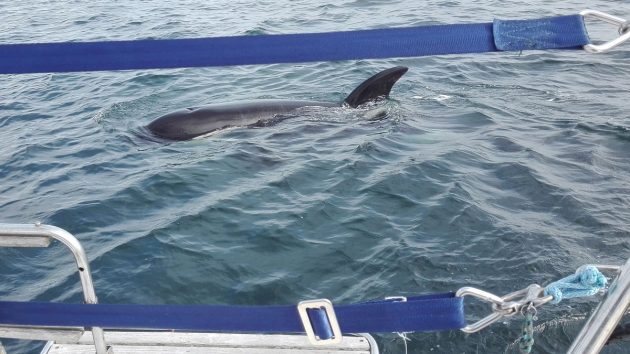
Since the launch of its orca project in June 2022, the Cruising Association (CA) has received 154 reports of interactions – mainly bumping or ramming the hulls of small yachts and damaging rudders.
The hotspots follow the migration of tuna exiting the Mediterranean from the Strait of Gibraltar and heading West and North around the Iberian Peninsula.
Of these ‘ eventful passages ‘, 38 yachts (24.7%) required extensive repair, 59 (38.3%) needed moderate repair, 12 yachts (7.8%) minor repair and 45 (29.2%) did not require repair. Some 33 yachts required a tow (21.7%) while 119 (78.3%) did not.
This compared to 326 ‘uneventful passages’, of which 11 yachts saw orcas, the remainder did not.
Since 2020, a particular pod of orca have been consistently interacting with yachts in the Strait of Gibraltar and Iberian Peninsula; four boats have been sunk.
The most recent happened on the 31 October when a group of orca damaged the rudder of a Jeanneau Sun Odyssey 449 during a 45-minute interaction in the Strait of Gibraltar, causing major damage; the vessel began taking on water. The yacht belonged to the Polish charter company, Morskie Mile.
The skipper and crew, along with the emergency services, including the Moroccan Navy, tried to bring the boat into the port of Tanger-Med, but the vessel sank near the port’s entrance.
None of the crew were injured.

Orcas enjoy eliciting a response. Credit: Grupo de trabajo Orca Atlántica (GTOA)
The Cruising Association has formed a collaboration with Grupo Trabajo Orca Atlantica (GTOA) , a group of Spanish and Portuguese scientists. After three years of study, scientists still do not know why around 15 orcas from a population of less than 50 are displaying this behaviour, and legal means of deterring or minimising orca interactions are required .
However, insurance companies contacted by PBO have confirmed that there are currently no clauses being introduced to deter sailors from travelling off the coast of Spain and Portugal.

Credit: Grupo de trabajo Orca Atlántica (GTOA)
George Beevor, yacht manager at Stoneways Marine said: “If a boat is sailing in a cruising area covered by their policy, they would be insured. Certainly, at Stoneways we have no intention of excluding a fairly well-established peril of the sea such as collision with a mammal. window._taboolaSlots=window._taboolaSlots||[];window._taboolaSlots.push({"mode":"thumbnails-a-mid","container":"taboola-mid-article","placement":"Mid Article","target_type":"mix"}); “In addition, our cover offers repatriation cover after such an incident as well as mental health support. Over time some insurers may increase premiums for the cruising areas where increased claims are being experienced but we have no plans at the moment to reduce our exposure to Atlantic Waters of Portugal and Spain where the bulk of these incidents seem to have occurred.”

A Royal Yachting Association (RYA) spokesperson said: “We’re not aware of the provisions or exclusions of other marine insurance companies, but Bishop Skinner Marine has worked in partnership with the RYA for over 30 years to offer specialist marine insurance to our members. “They have confirmed to us that Orca damage is covered under the standard policy with no exclusions. The RYA’s legal team would of course recommend that it is prudent for individuals to check their own policy to ensure it does the same if they are not covered with a standard policy from Bishop Skinner Marine. “The RYA is continuing to monitor this issue, and you can view the current Orca guidance on our website.”
Continues below…
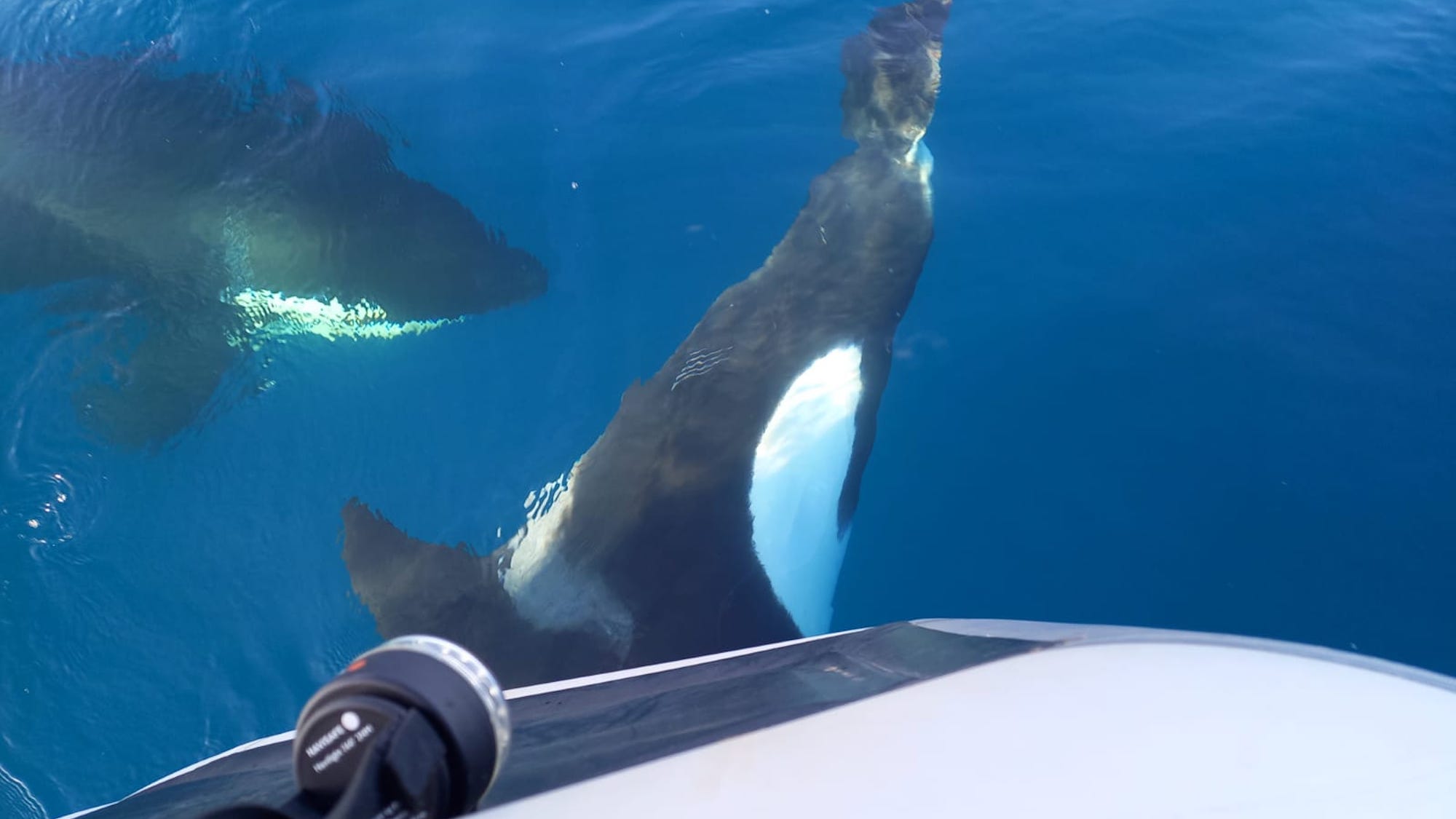
Orcas left us rudderless! Yacht couple tell of terrifying ordeal off Spain
Zoe Barlow shares her experience of losing a rudder during sustained attacks by orcas whilst sailing her Sun Odyssey 40…
Sea trials of new acoustic deterrent device to keep orcas at bay
Sea trials are scheduled to be held off the Portuguese coast to test a new acoustic deterrent device which aims…

‘Orcas are playing with the yachts’ – experts’ theories after sinking
Marine biologists say evidence suggests that orca interactions with yachts are ‘playful’ rather than aggressive, but at risk of becoming…

An orca from the pod that ‘interacted’ with Sir Robin Knox-Johnston’s Farr 56. Credit: Gemma Nichols
Sir Robin Knox-Johnston , the first person to sail single-handed non-stop around the globe, is amongst the most high profile of sailors to report an interaction with orcas.
His Farr 56 Sanjula was damaged during an encounter with a pod of orca “barging the rudder” in November 2022, off the Spanish coast of Cape Finisterre, breaking a steering connecting rod before losing interest. Emergency steering had to be rigged so Sir Robin and crew could sail on to Vigo for repairs.
A spokesman for Haven Knox-Johnston boat insurance , founded by Sir Robin’s brother Chris, said: “We have currently had no issues – apart from RK-J. The All Weather policy does offer cover if a vessel is attacked by an orca.”

Visit the CA’s new research library on orca interactions at www.theca.org.uk/orcas/interaction-deterrent-library
NB: This story was updated to include details of the most recent sinking of a yacht by orca, which happened on 31 October 2023.

Gene Rubbert
Gene became a boat enthusiast while growing up in Florida. He has vast amounts of experience with his own boats. Gene loves to help buyers find just the right boat, so they can enjoy the peaceful boating lifestyle. Gene covers the Seattle/Tacoma areas for Orca Yachts. Whether you’re buying or selling, Gene will get the job done for you, with integrity.
Phone: (206)-498-8664
Email: [email protected]
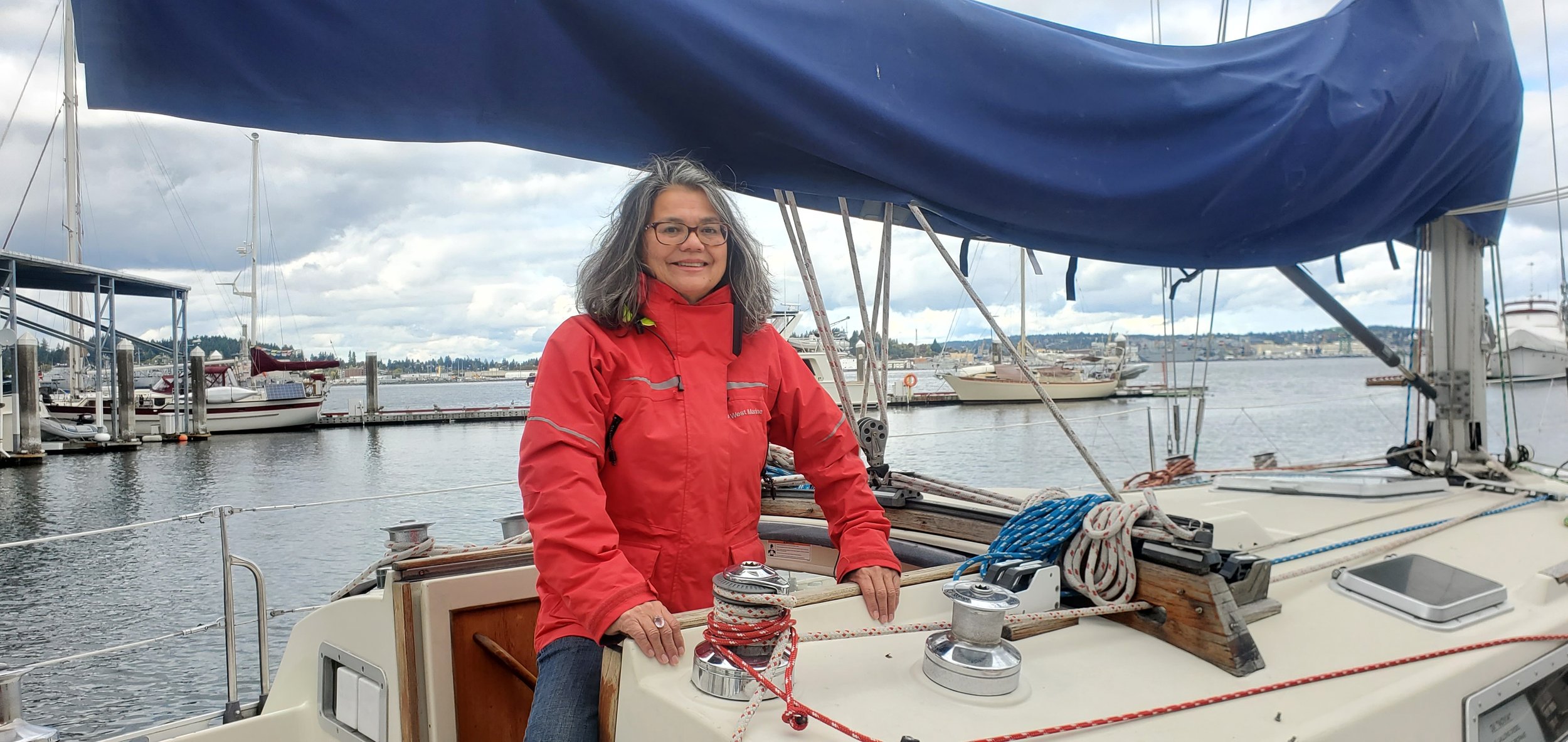
Pilar Perry
Phone: (575) 947 -4395
Email: [email protected]

IMAGES
COMMENTS
An unknown number of orcas have sunk a sailing yacht after ramming it in Moroccan waters in the Strait of Gibraltar, Spain's maritime rescue service said on Monday, a new attack in what has ...
A sailing yacht has sunk in Moroccan waters in the Strait of Gibraltar after being rammed by an unknown number of orcas, Spain's maritime rescue services said. ... Orca rammings in the Strait of ...
Last summer, for example, three orcas attacked a yacht during an international race in the Strait of Gibraltar. "This was a scary moment," the skipper Jelmer van Beek said at the time.
A sailing yacht sunk in the Strait of Gibraltar on Sunday after an unknown number of orcas slammed into the vessel with two people on board and caused a water leak, officials said. Both crew ...
Last November, orcas slammed a yacht's rudder for 45 minutes, causing its crew to abandon the vessel, which sank near the Tanger Med port. Image The rudder of a ship that was damaged by orcas in ...
The boat-sinking orcas are back. Around 9 a.m. Sunday near the Strait of Gibraltar, two people on board the roughly 50-foot Alboran Cognac reported blows to the vessel's hull and saw damage to ...
The orcas are at it again. A group of the highly social marine mammals, also called killer whales, attacked and sank a 50-foot-long sailing yacht on Sunday, the New York Times reported. Two people ...
A pod of orcas has sunk a yacht in the Strait of Gibraltar. A pair of orcas swim off the west coast of Vancouver Island in 2018. For 45 minutes, the crew of the Grazie Mamma felt like they were ...
A group of orcas managed to sink a yacht off the coast of Morocco last week, after its 45-minute attack on the vessel caused irreparable damage, a Polish tour company said. The incident happened ...
A yacht sank after it was attacked by a pod of orcas for 45 minutes, a sailing company has said, marking the latest assault on a boat by the sea mammals this year.. Polish tour operator Morskie ...
The incident occurred around 9 a.m. local time Sunday, some 14 miles north of Cape Spartel in northern Morocco. Passengers aboard the 50-foot Alboran Cognac felt blows to the yacht's hull and ...
According to a translated Facebook post made by Polish cruise company Morskie Mile, owner of the sunken boat, a mid-size sailing yacht named the Grazie Mamma was attacked by a pod of orcas off the ...
Olivier Morin/AFP via Getty Images. The crew of a sinking yacht was rescued off the coast of Spain this week after a pod of orcas apparently rammed the vessel - the latest "attack" by the marine ...
At around 9 a.m. local time on Sunday, May 12, a pair of crew members aboard the vessel, Alboran Cognac, reported that orcas damaged their yacht, which had been about 14 miles from Cape Spartel in ...
May 13, 2024, 6:48 PM PDT. A pod of orca whales feeds in the Atlantic Ocean. In the Mediterranean, a different group of orcas sank another yacht. Arturo de Frias photography. Killer whales took ...
An unusually large group of killer whales was spotted off the coast of San Francisco on May 7. (Michael Pierson / Oceanic Society) The attacks started suddenly and inexplicably in the spring of ...
T he five animals took an hour to put the sailboat beneath the waves. At the end of October 2022, four men, each in his late twenties, set sail from western France toward Lisbon. Augustin Drion ...
The orcas are back at it again, this time straight-up sinking a yacht near the Strait of Gibraltar. As the New York Times reports, two people had to be rescued after a group of orcas attacked the ...
A yacht sailing in the Strait of Gibraltar sank after being rammed by a group of orcas in the latest attack of its kind in recent years. The 15 metre-long Alboran Cognac was carrying two people ...
There were 52 reported orca incidents between June 2020 and March 2021. Credit: David Smith. Being chased, bumped and gnarled at by a pod of orcas was 'a mix of horror and love,' says Yara Tibirica who encountered the animals while sailing her 35ft live-aboard catamaran, Slughunter.
Some 33 yachts required a tow (21.7%) while 119 (78.3%) did not. This compared to 326 'uneventful passages', of which 11 yachts saw orcas, the remainder did not. Since 2020, a particular pod of orca have been consistently interacting with yachts in the Strait of Gibraltar and Iberian Peninsula; four boats have been sunk.
He has vast amounts of experience with his own boats. Gene loves to help buyers find just the right boat, so they can enjoy the peaceful boating lifestyle. Gene covers the Seattle/Tacoma areas for Orca Yachts. Whether you're buying or selling, Gene will get the job done for you, with integrity. Phone: (206)-498-8664. Email: [email protected].
The Ravenna-based shipyard Rosetti Superyachts has unveiled its latest superyacht concept which takes its inspiration from the natural world: a 65-metre explorer yacht with "strong supply vessel characteristics" called Project Orca. Project Orca has been developed in collaboration with the Trieste-based Meccano Engineering who are responsible for the engineering, naval architecture and ...